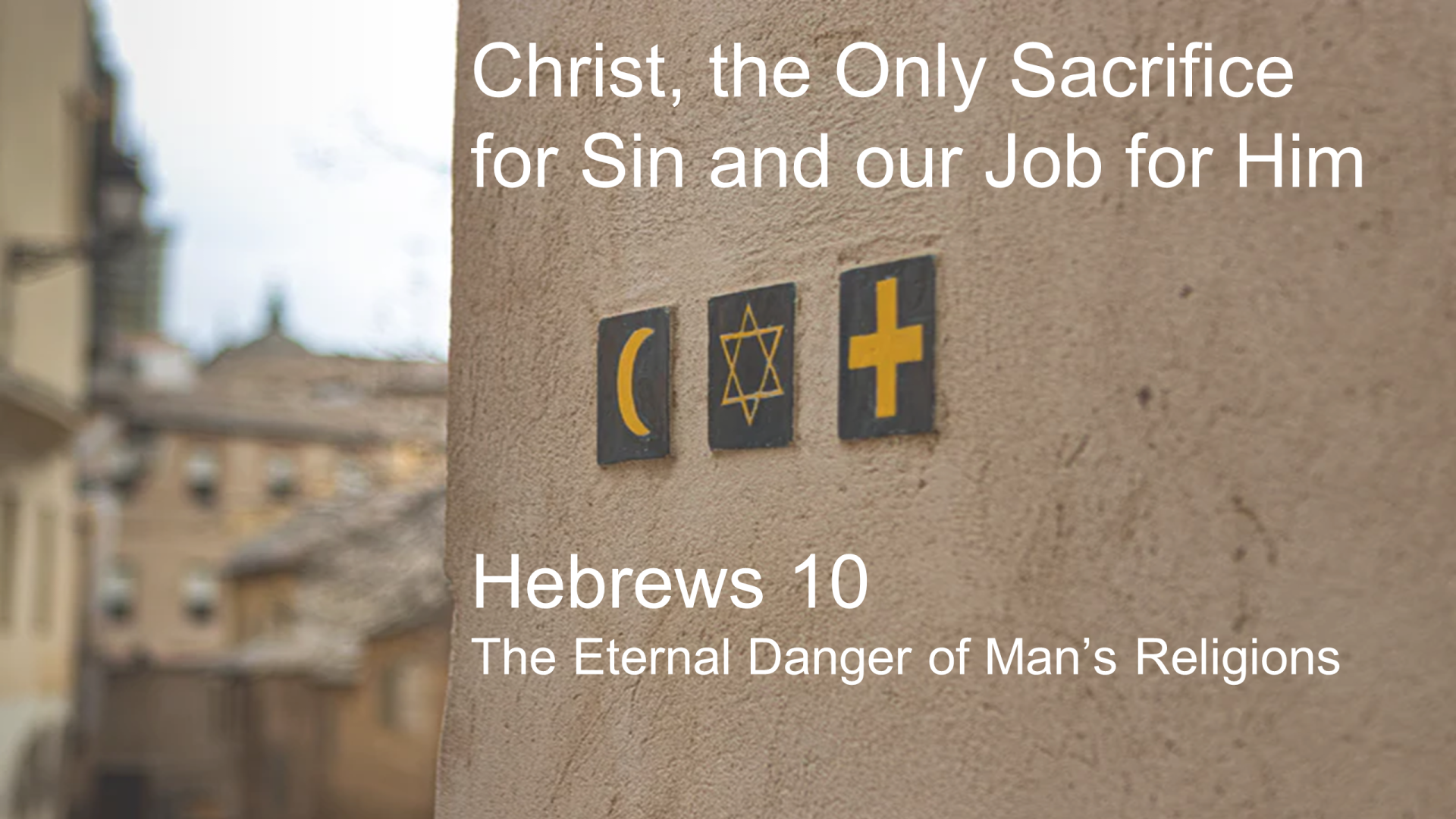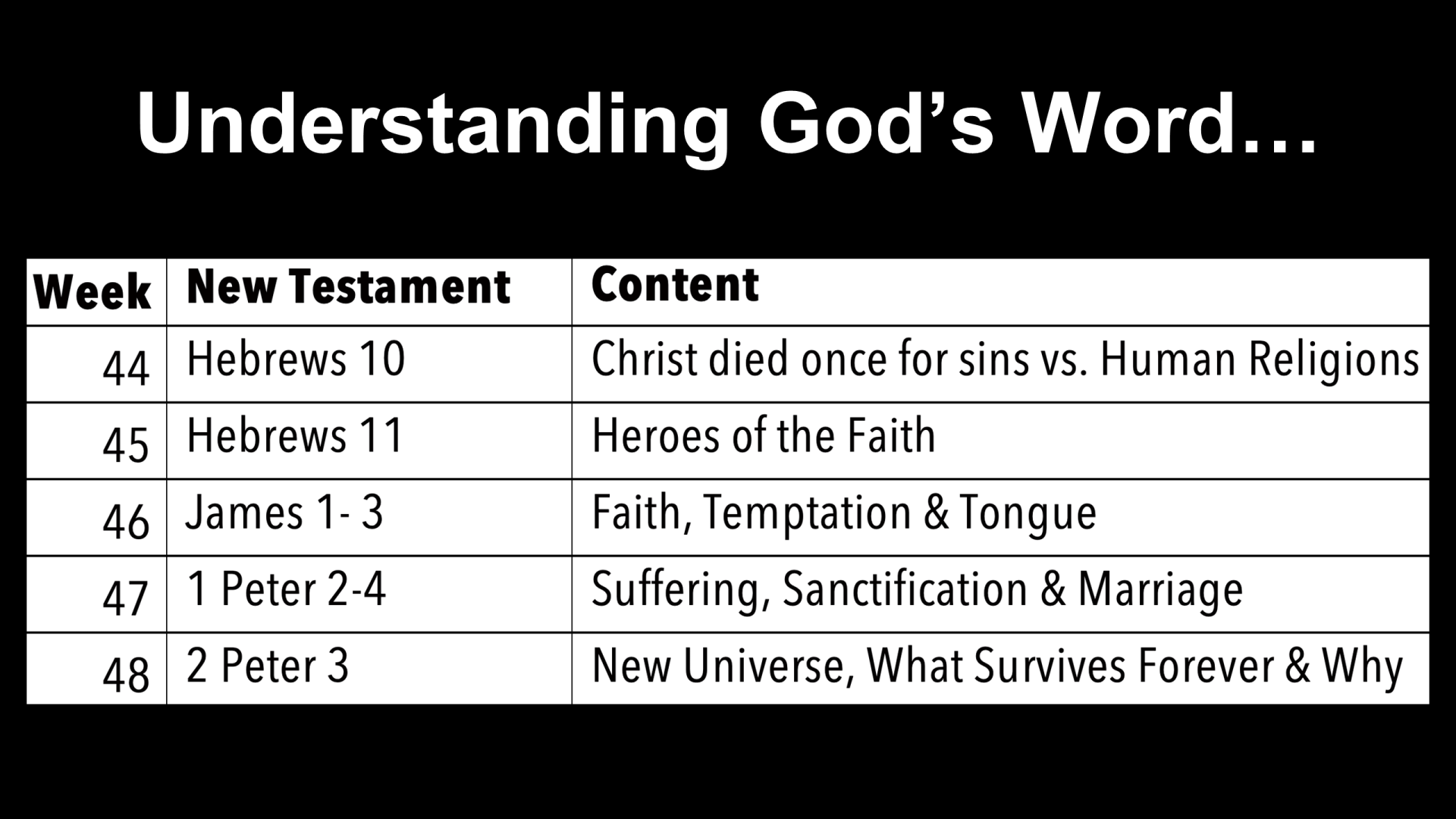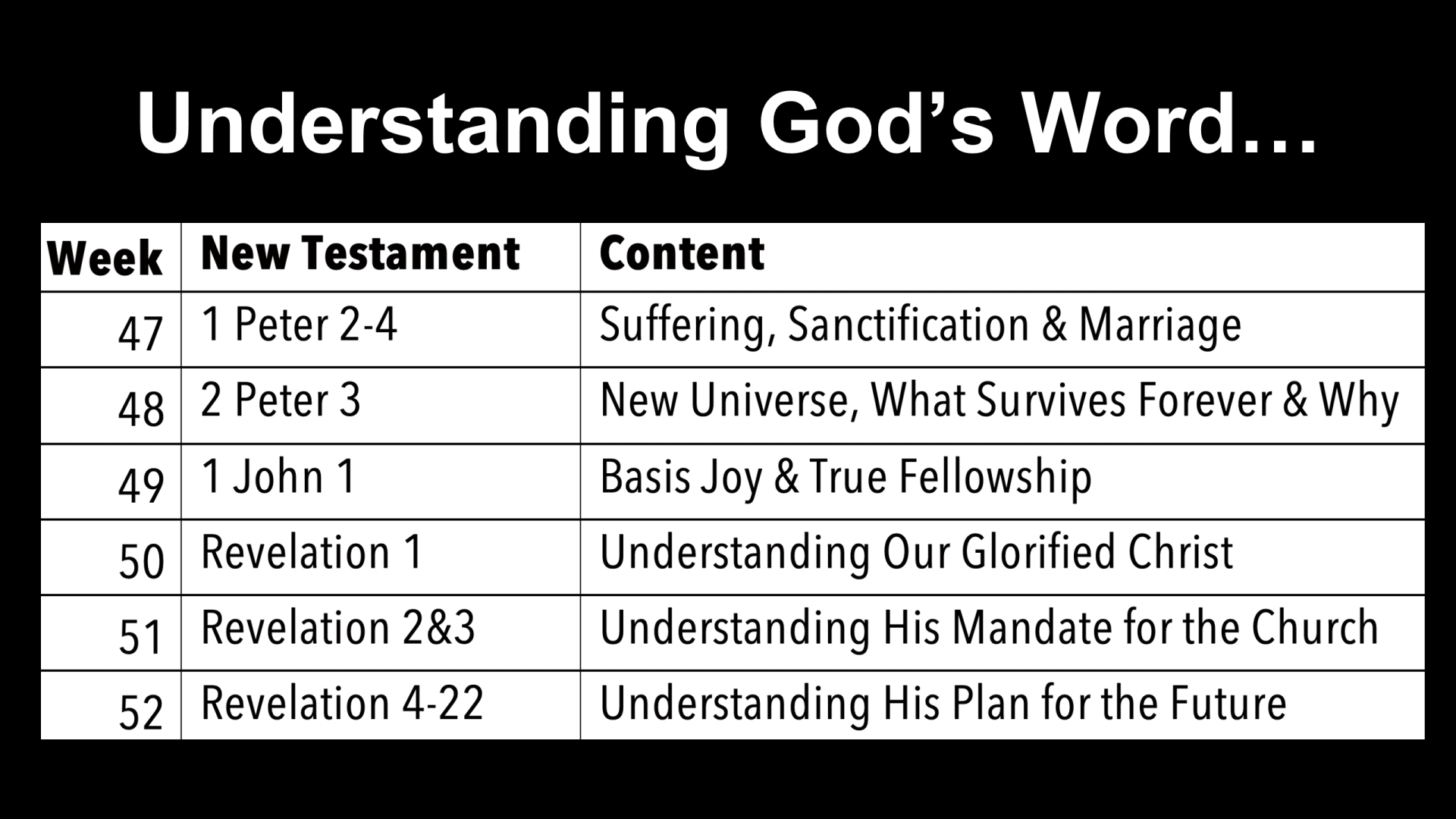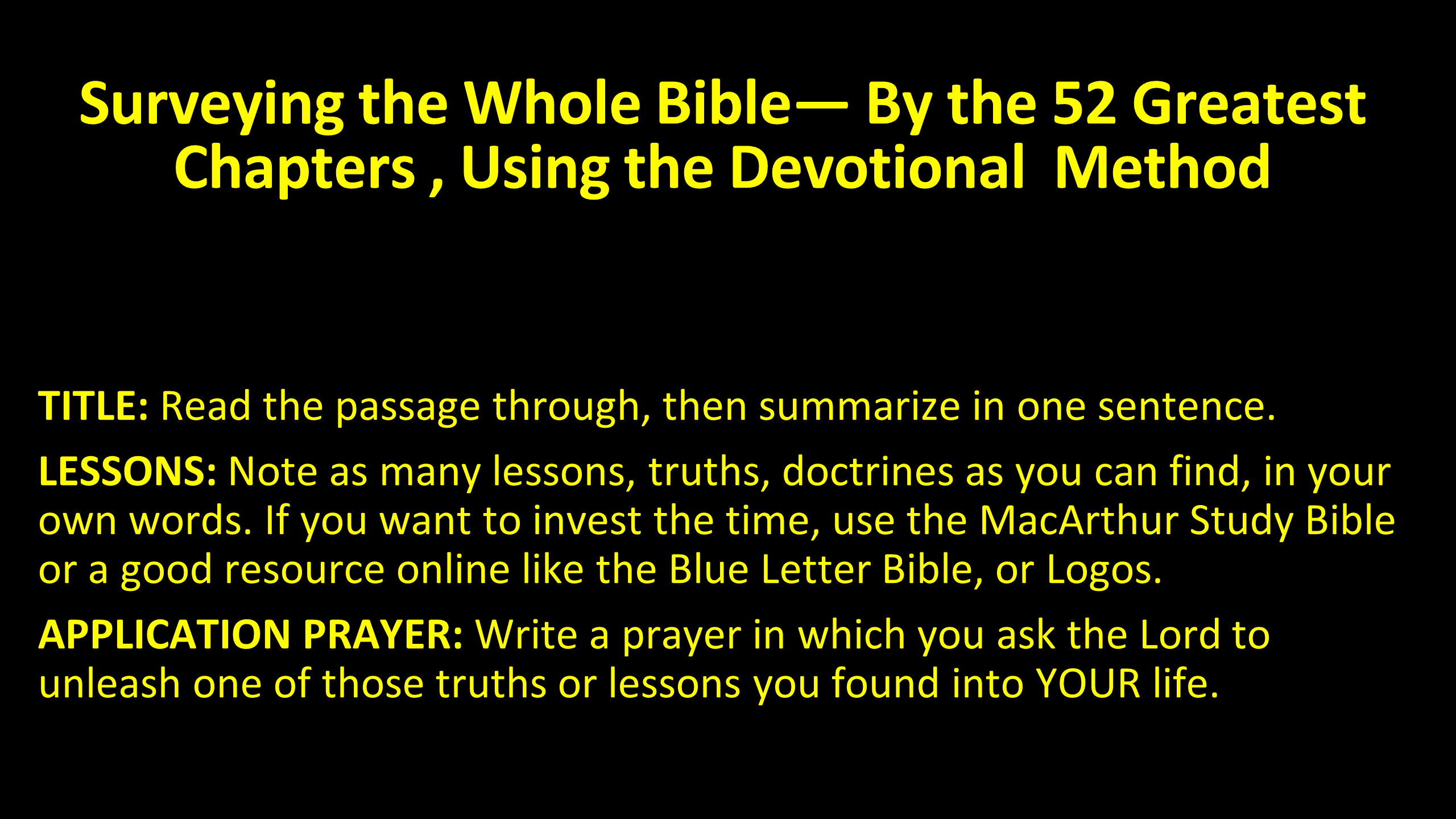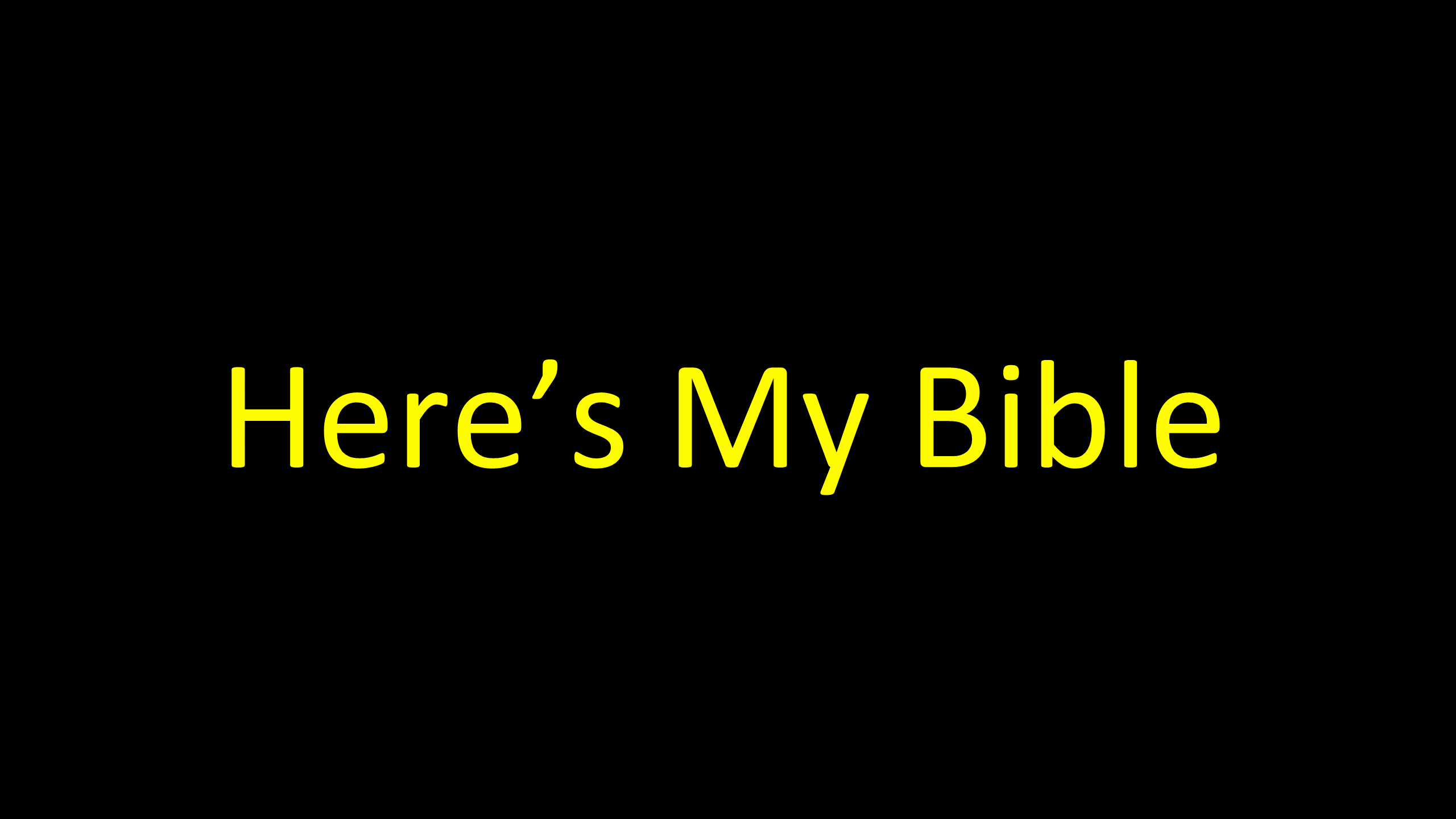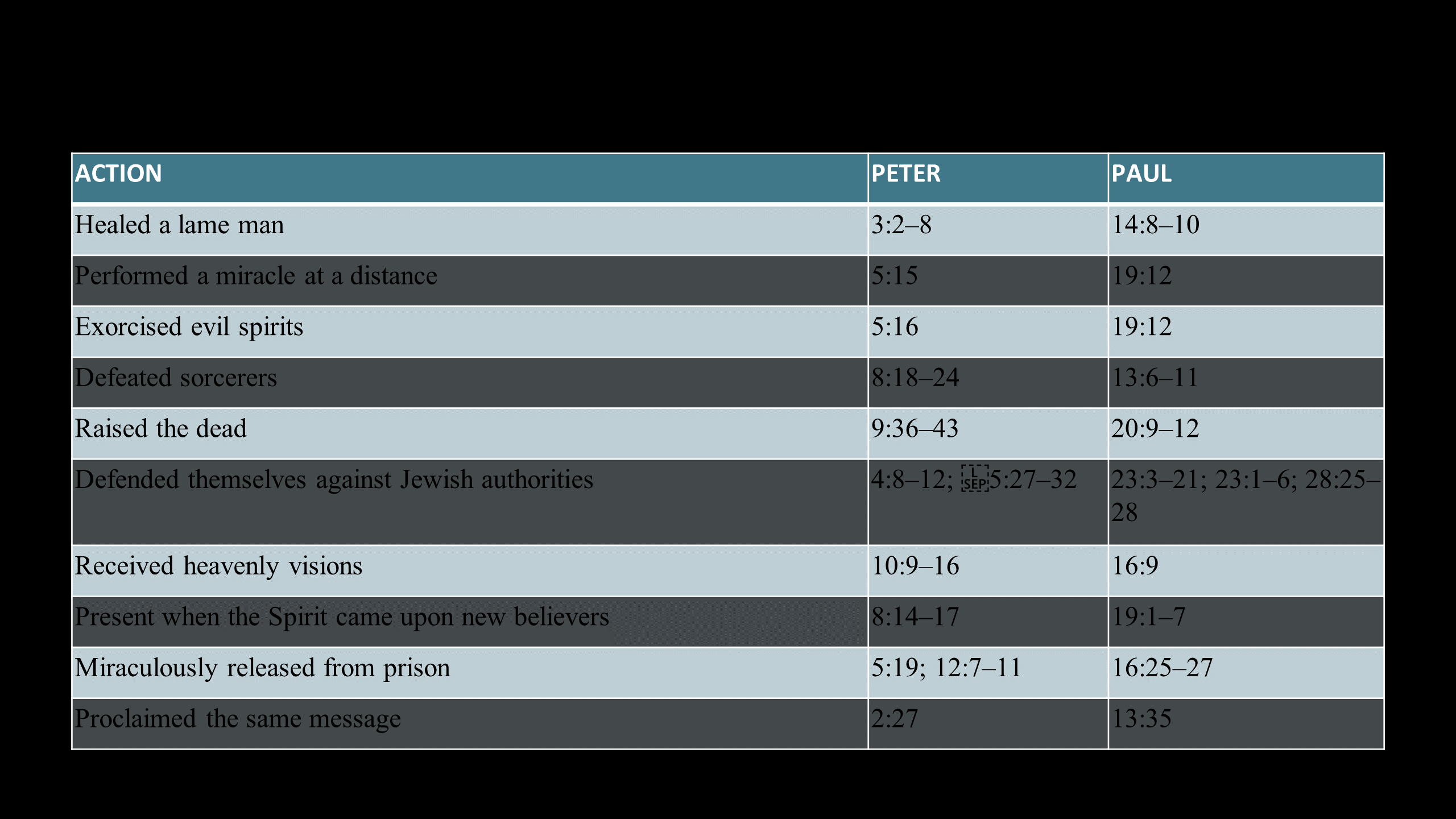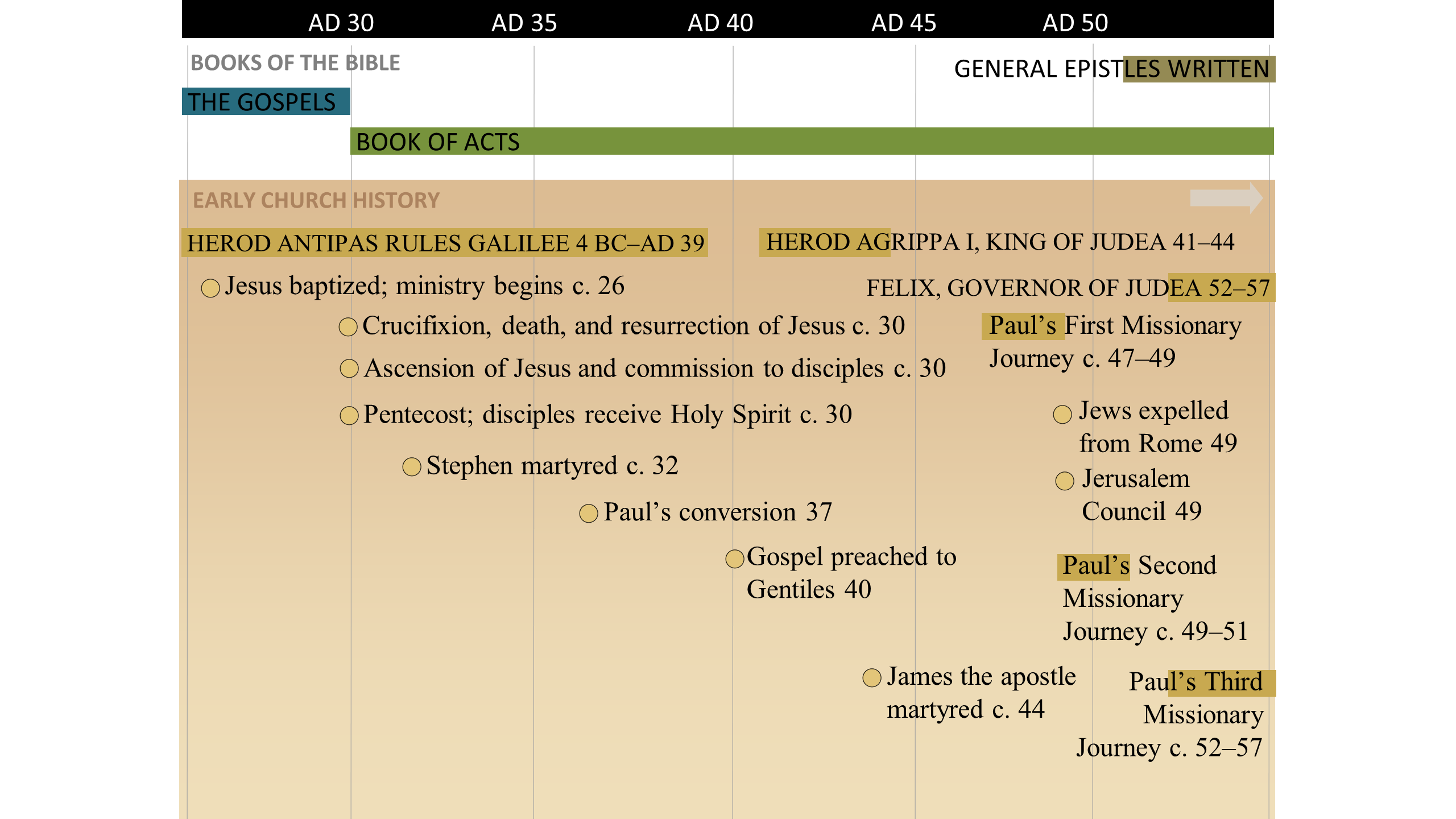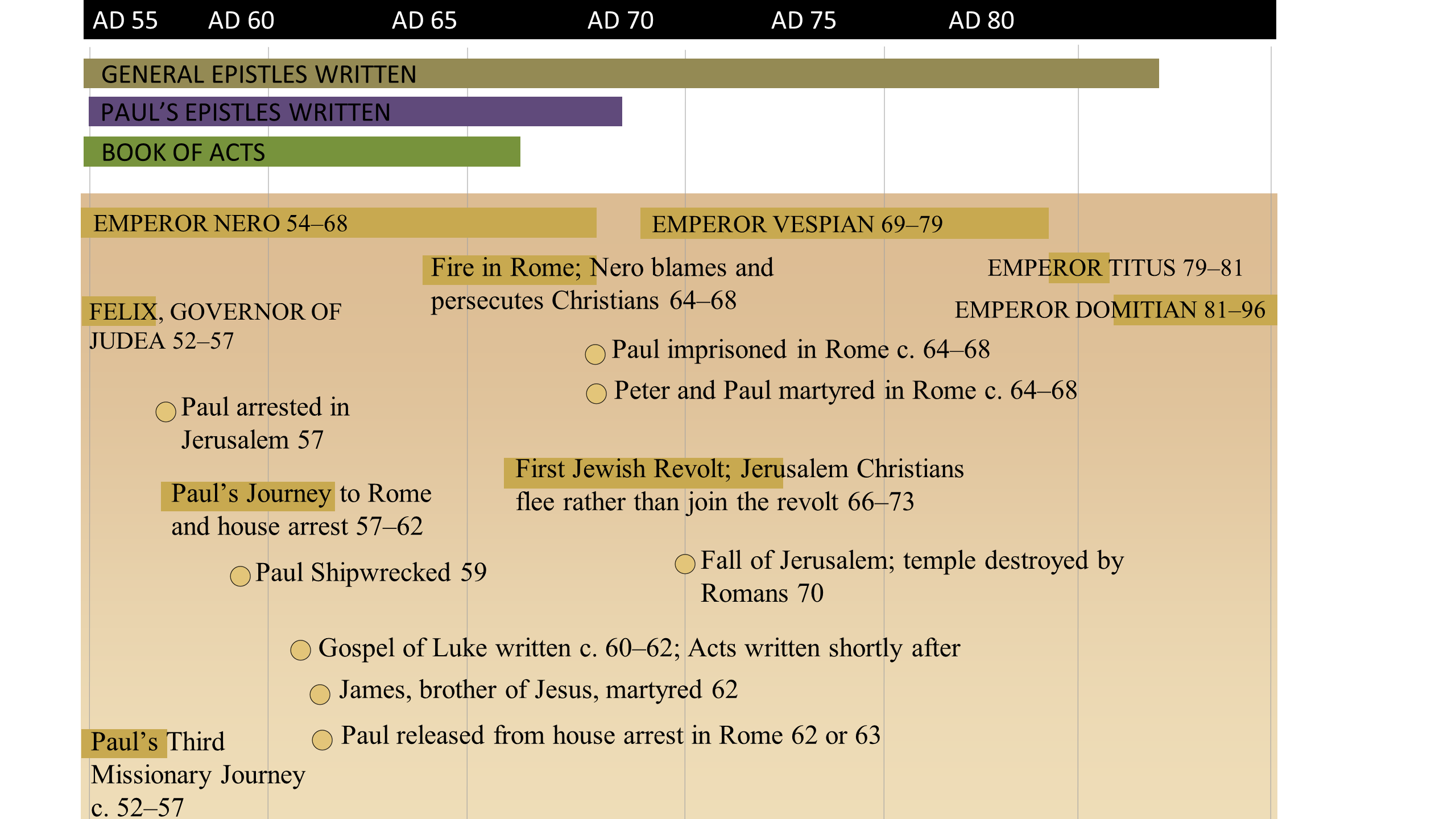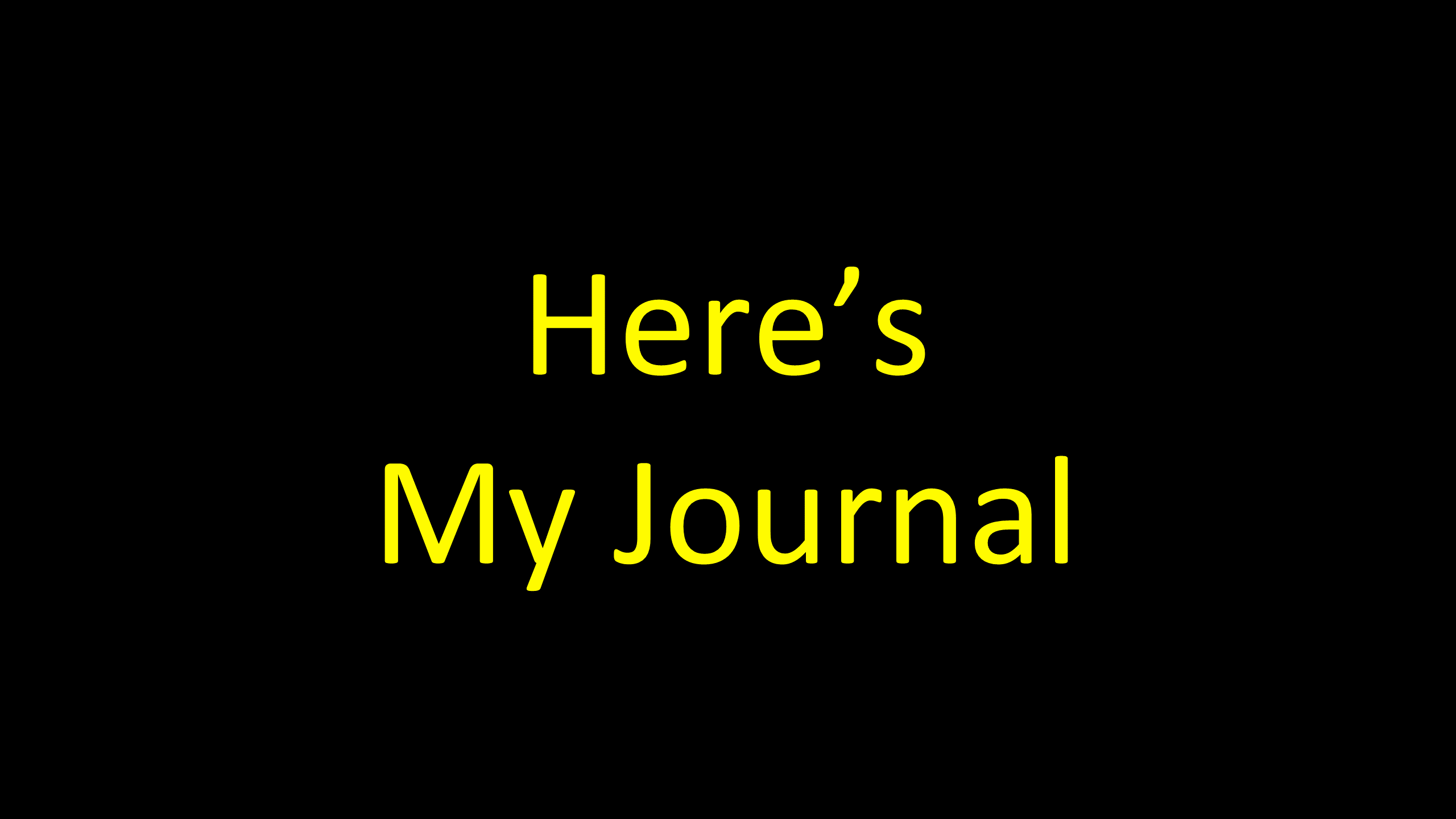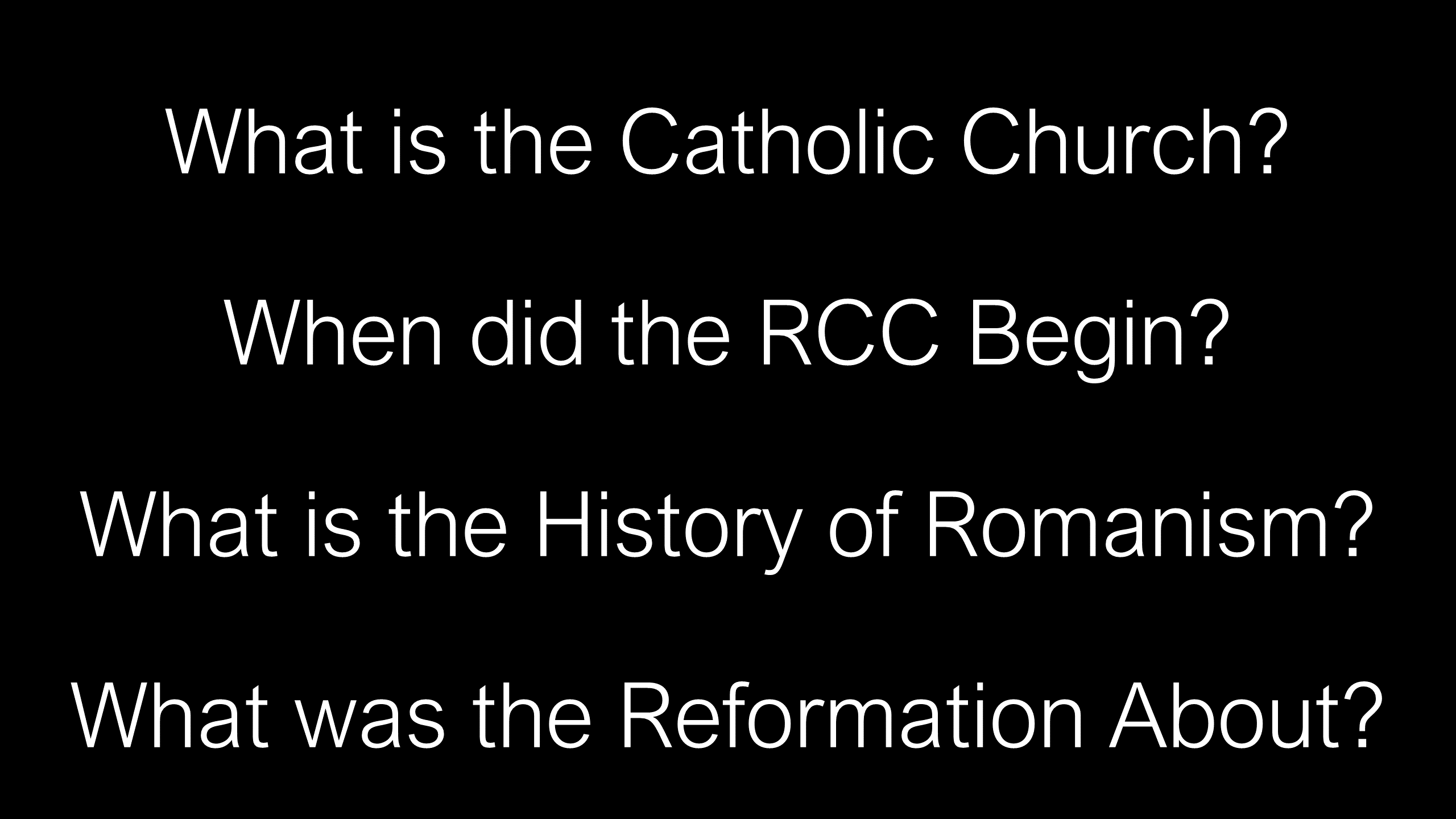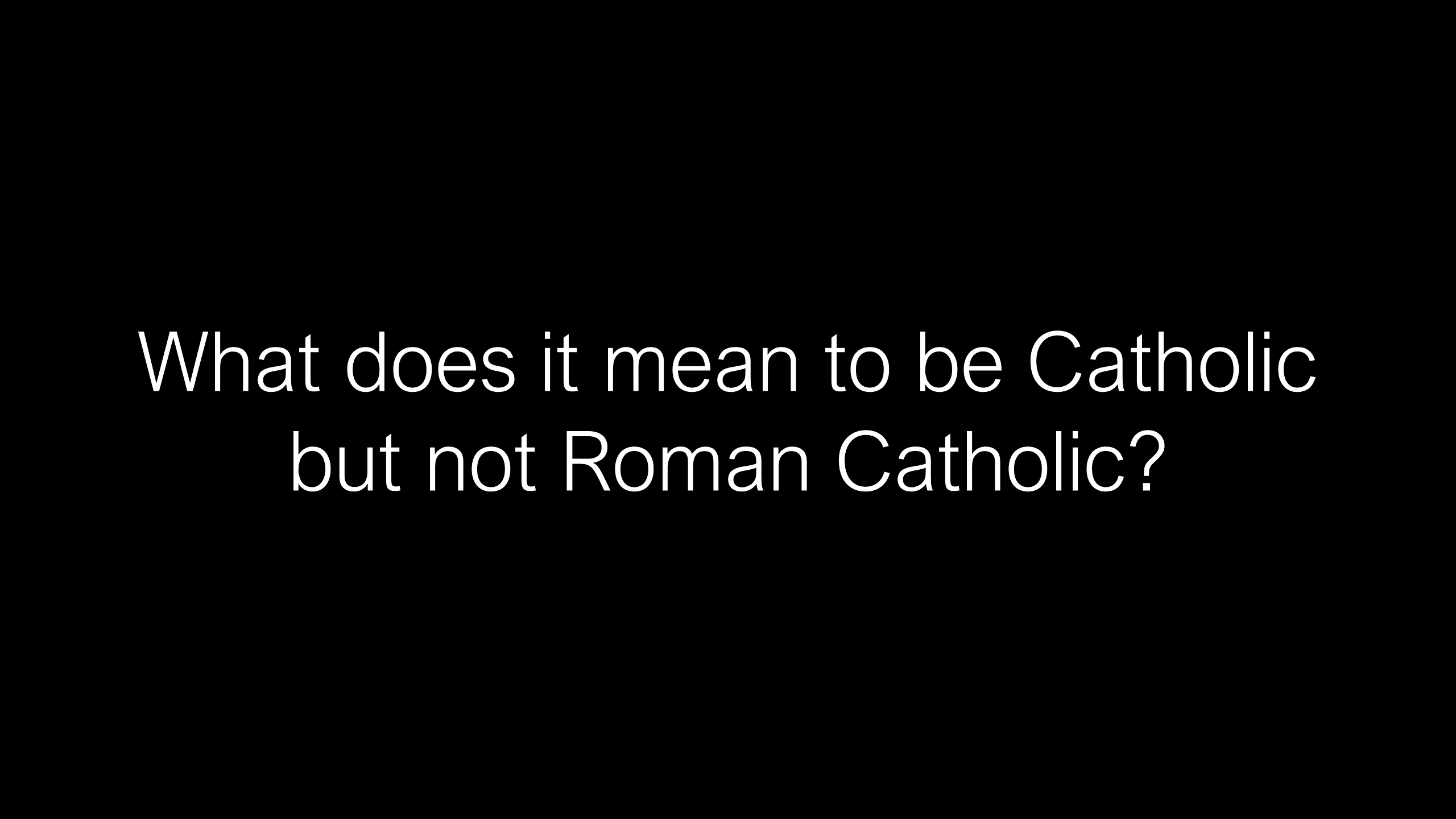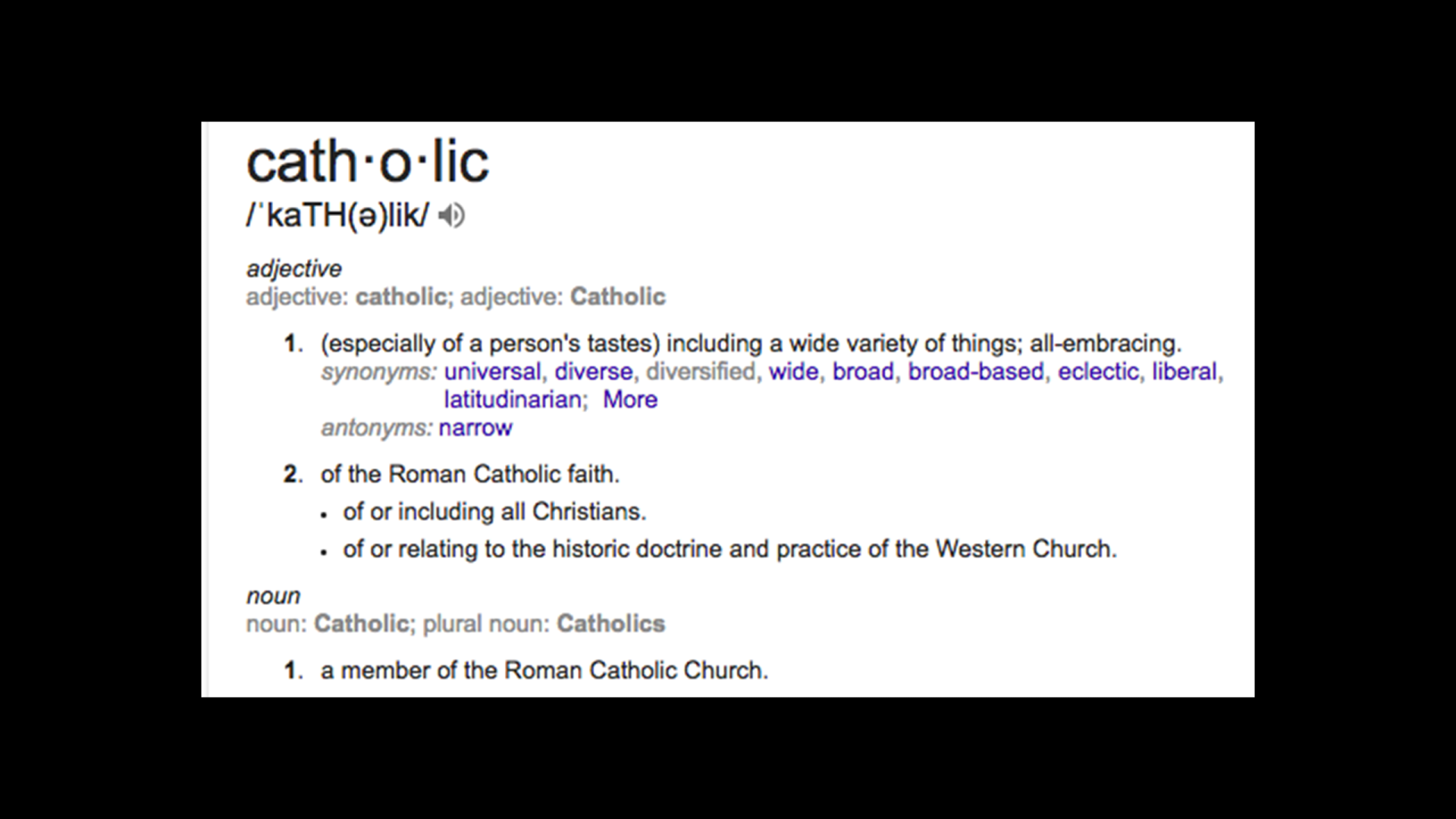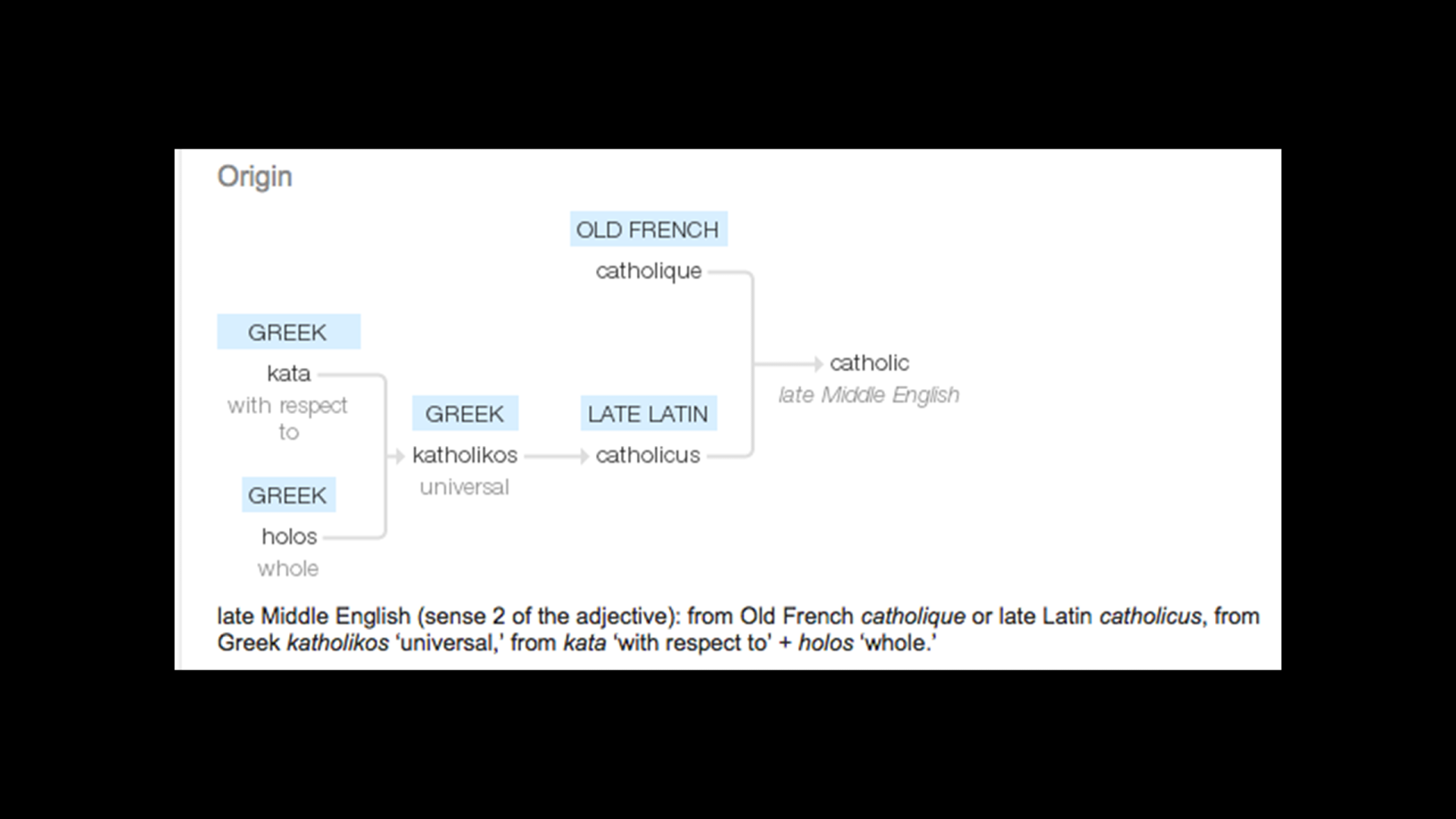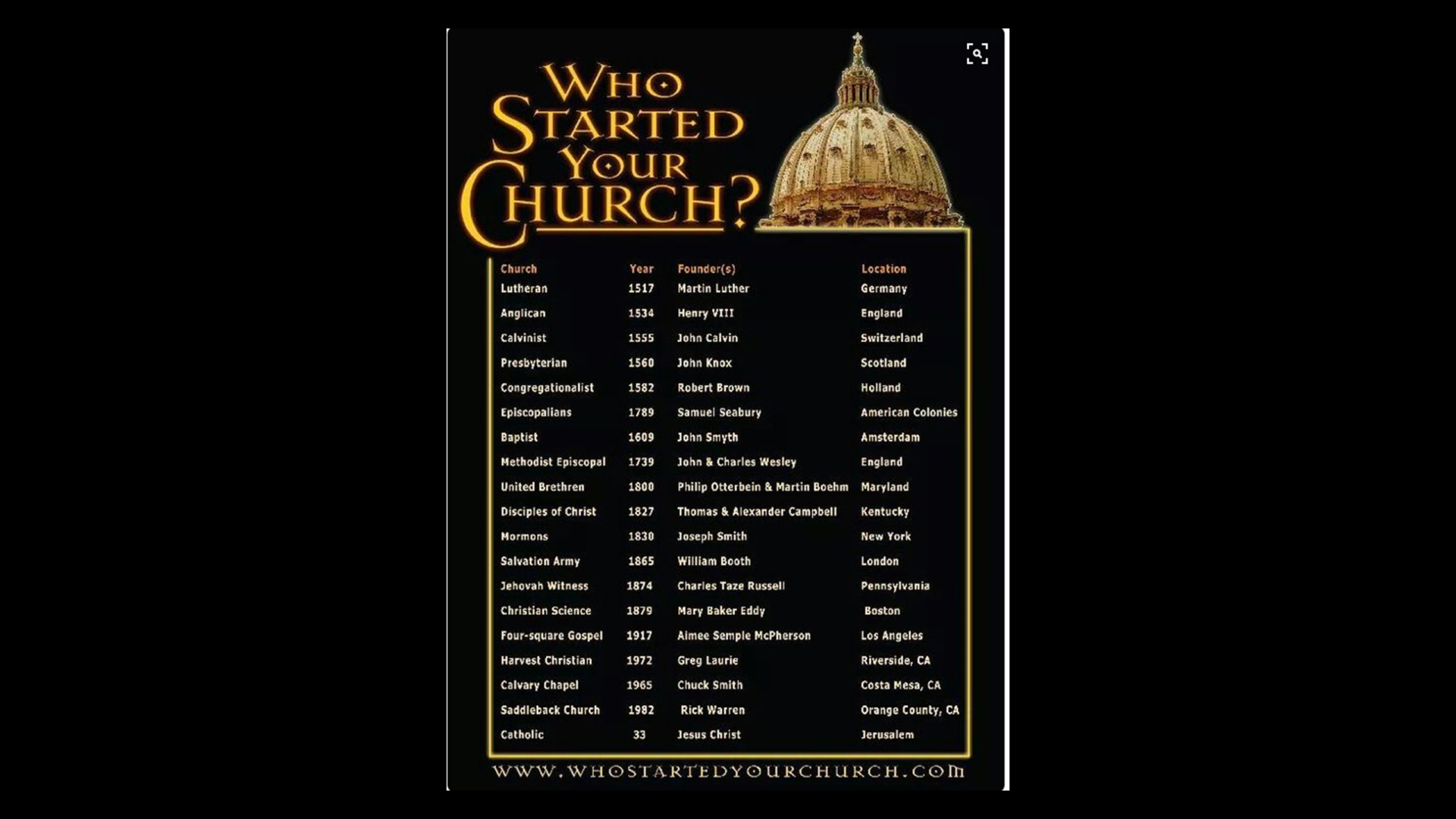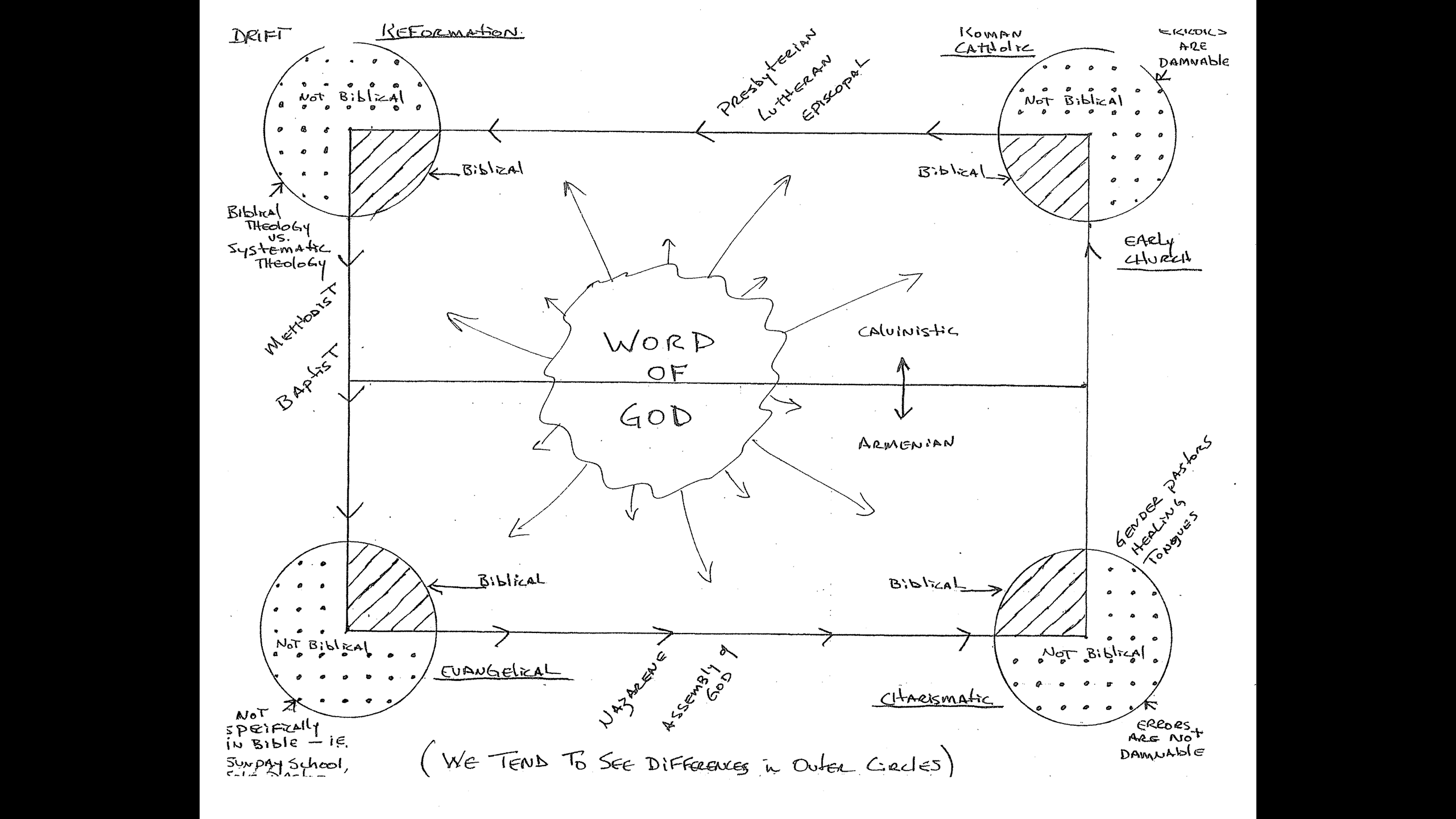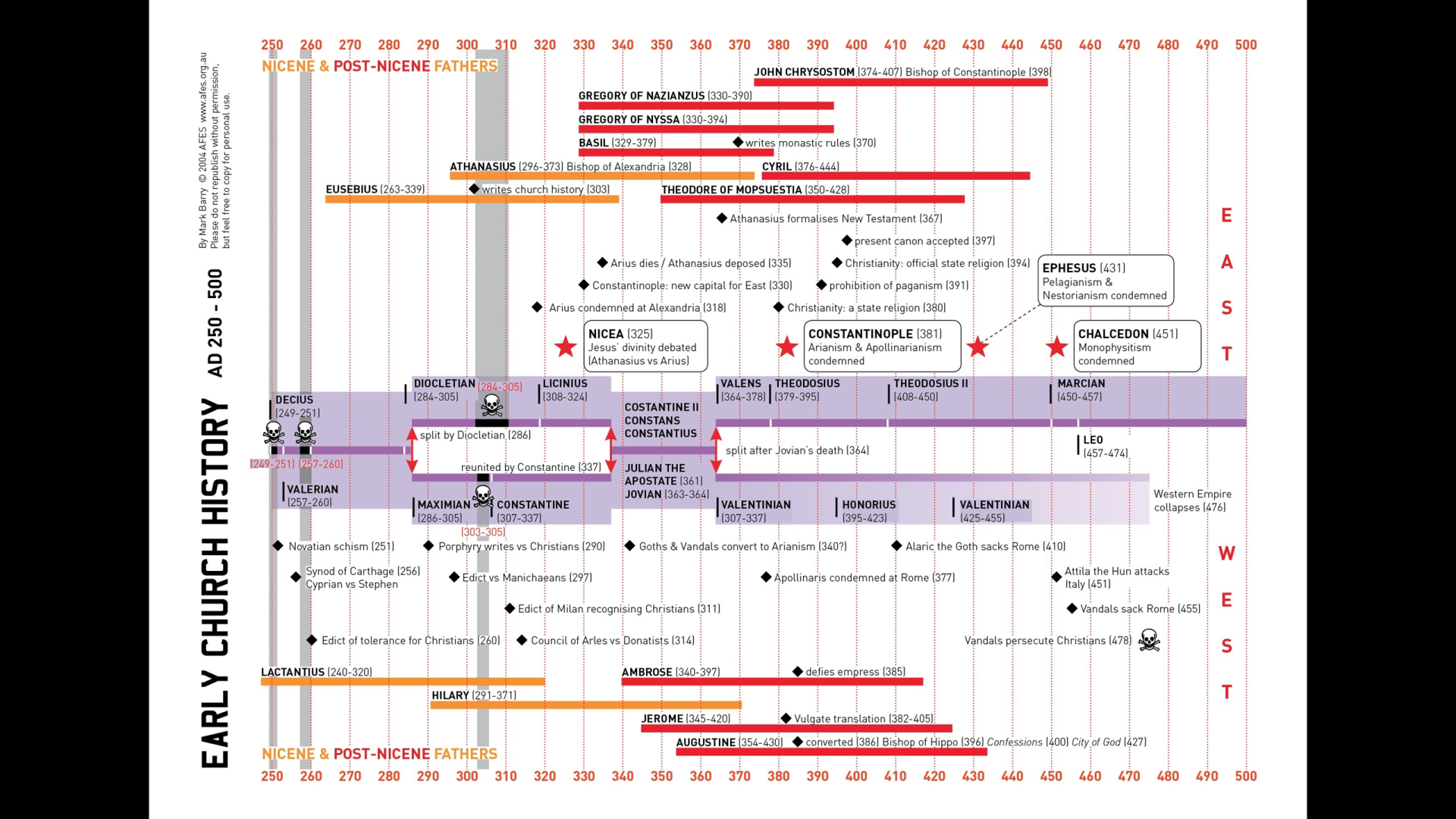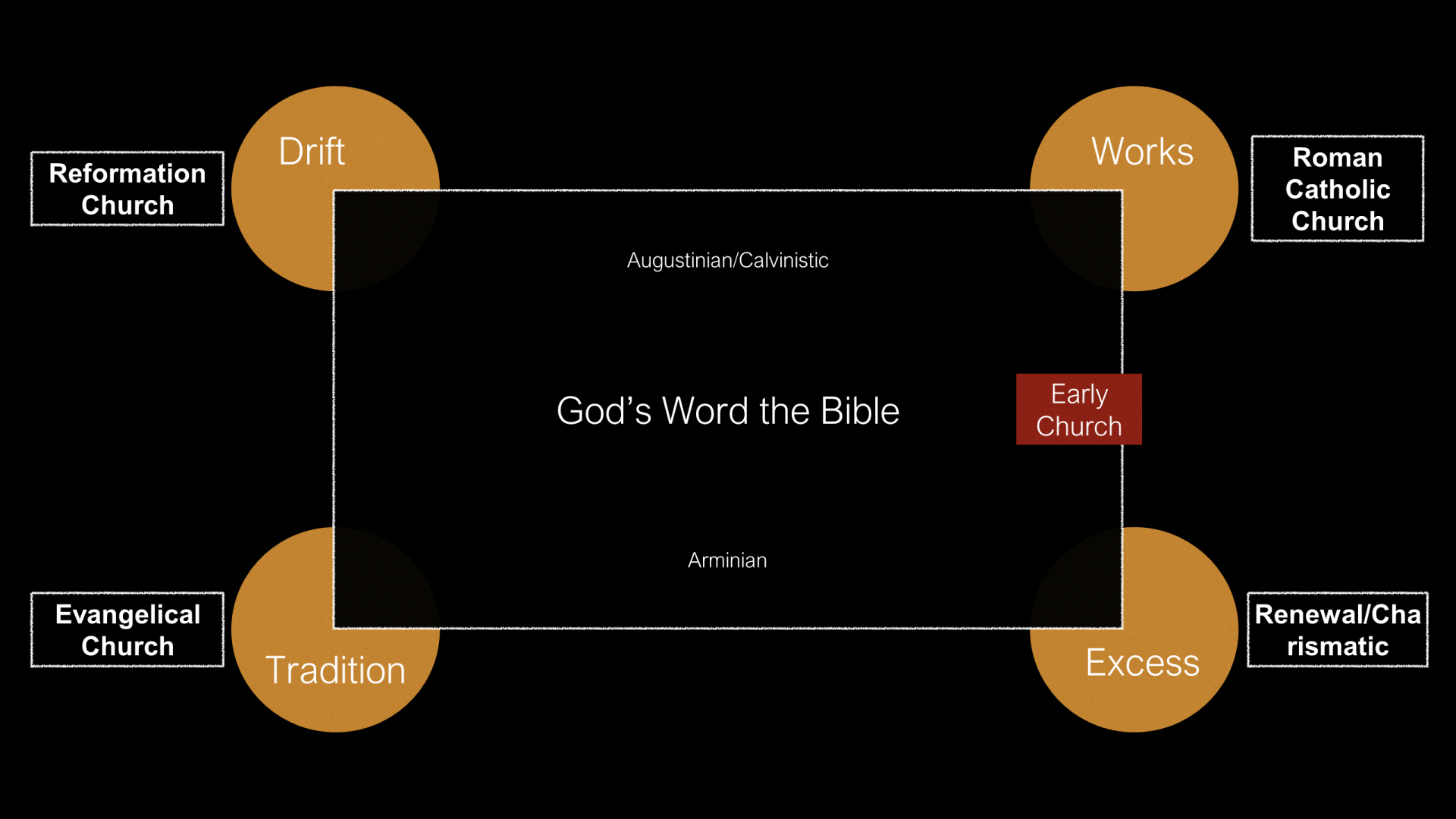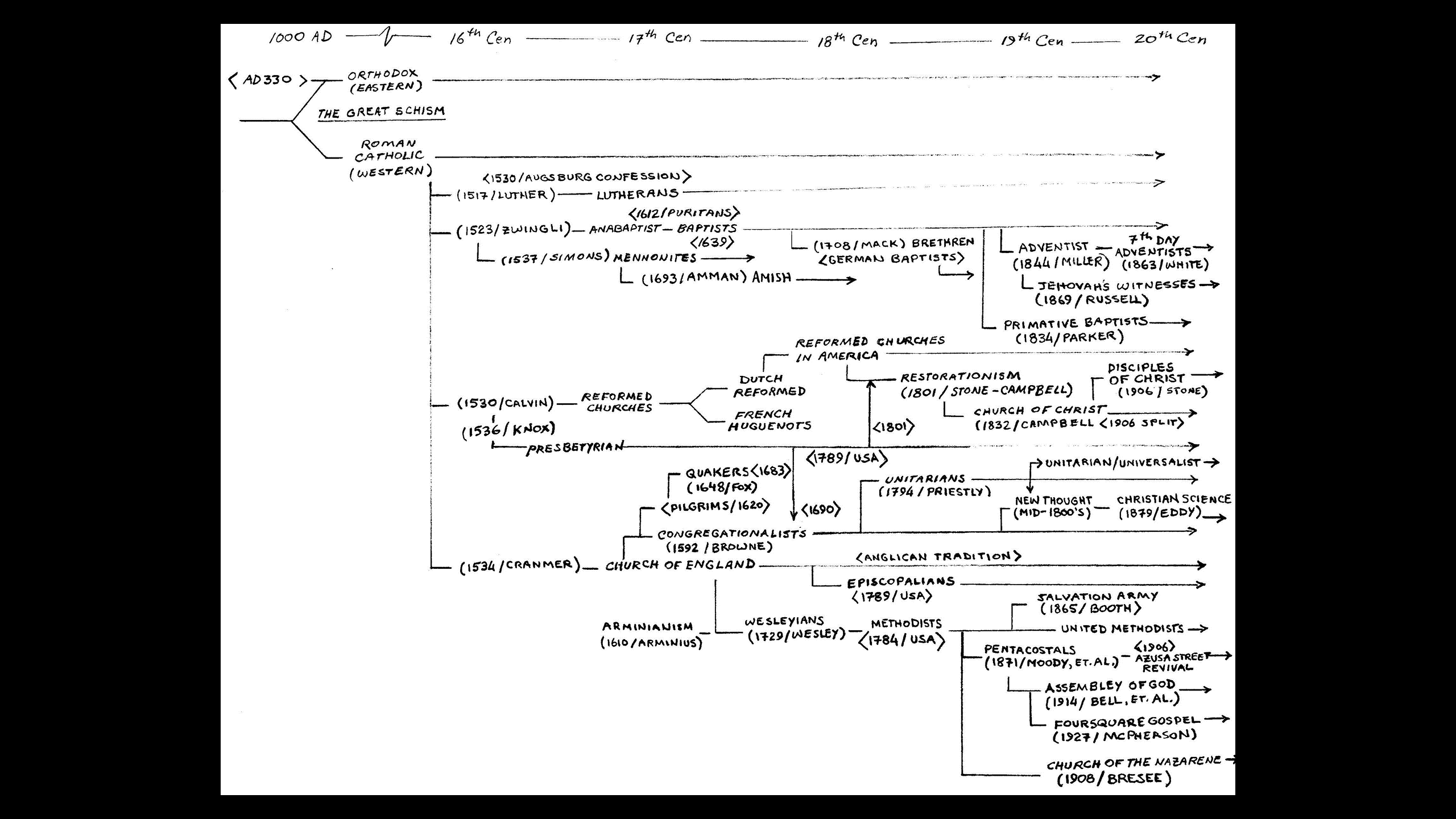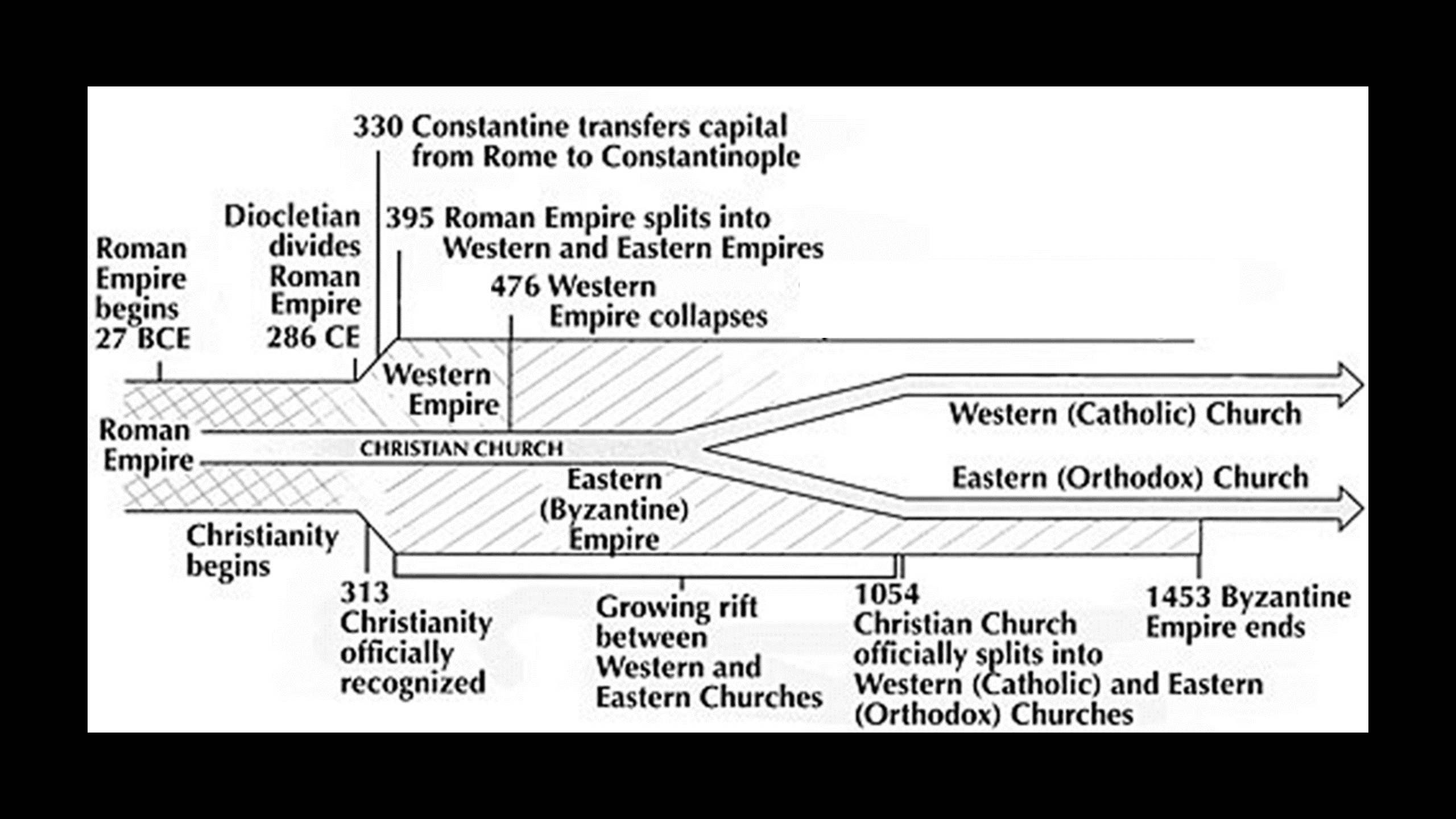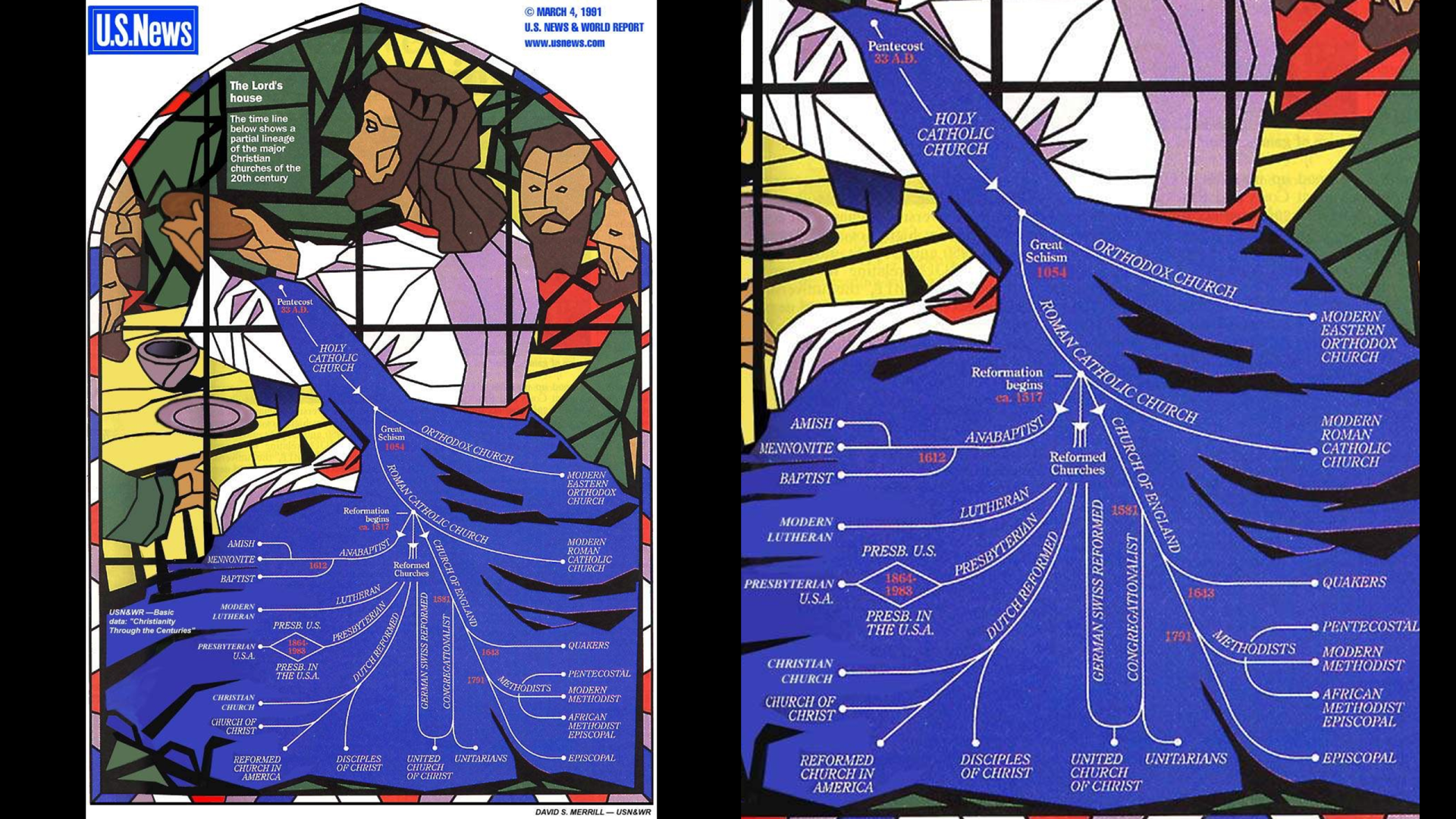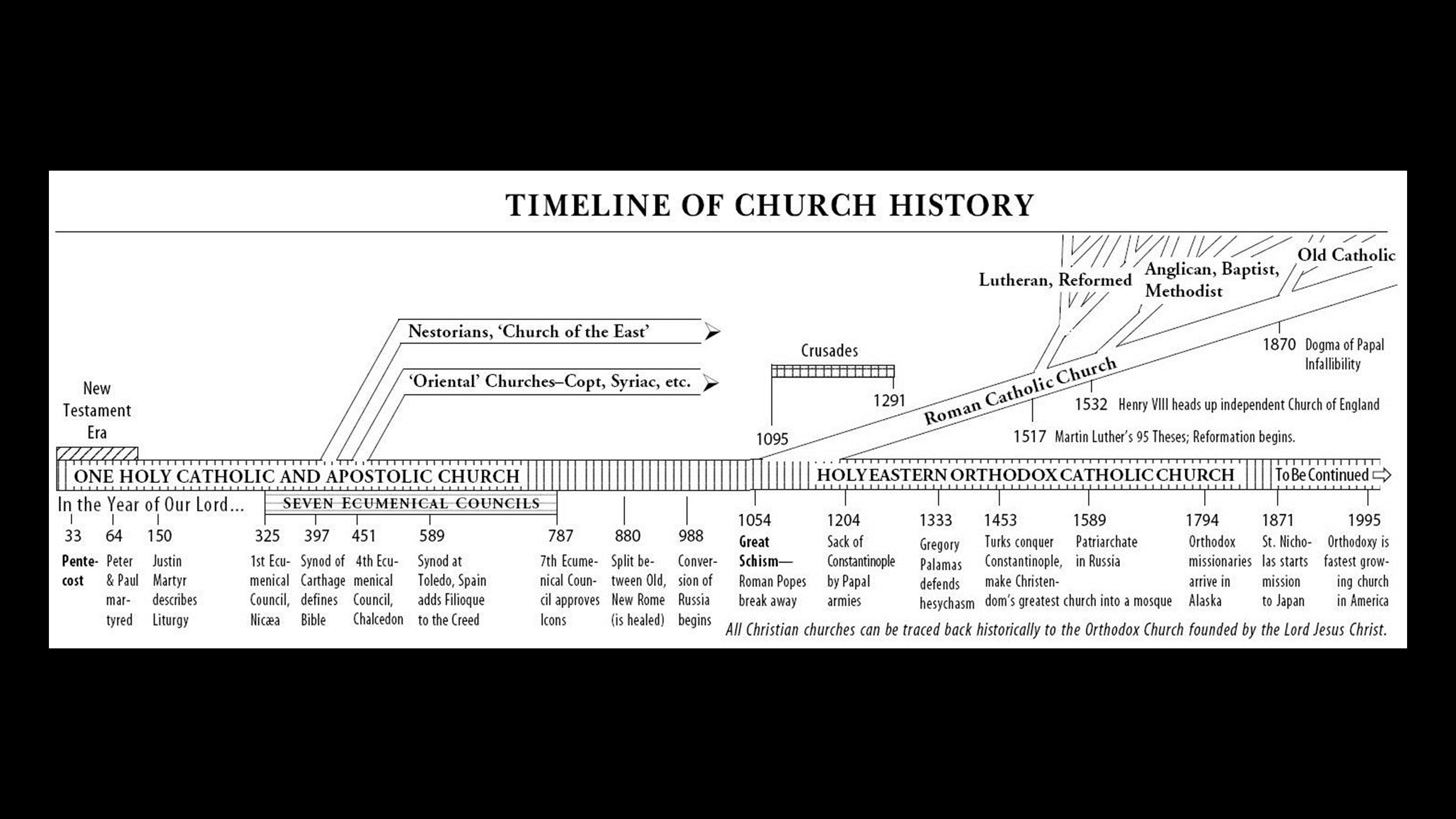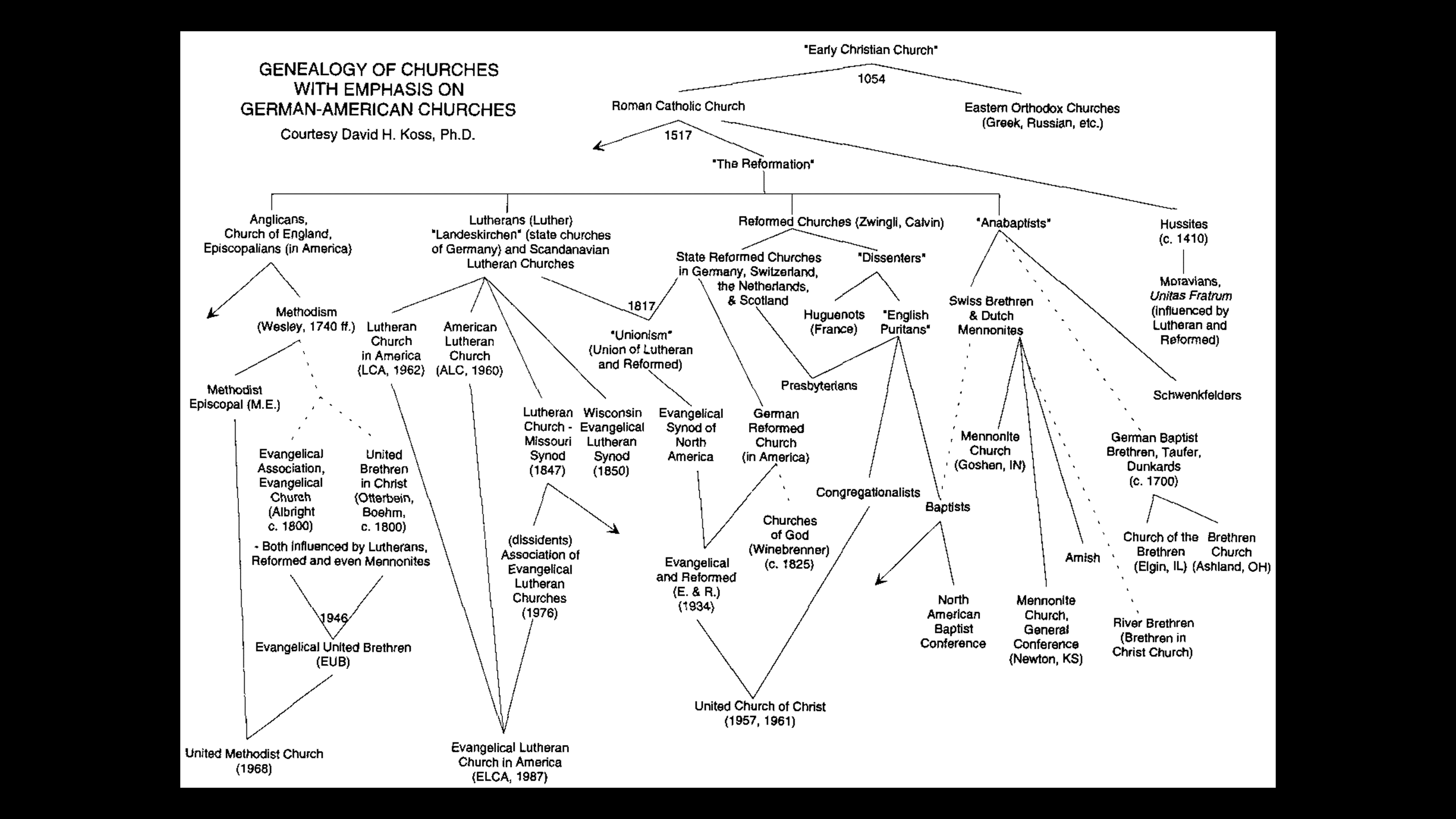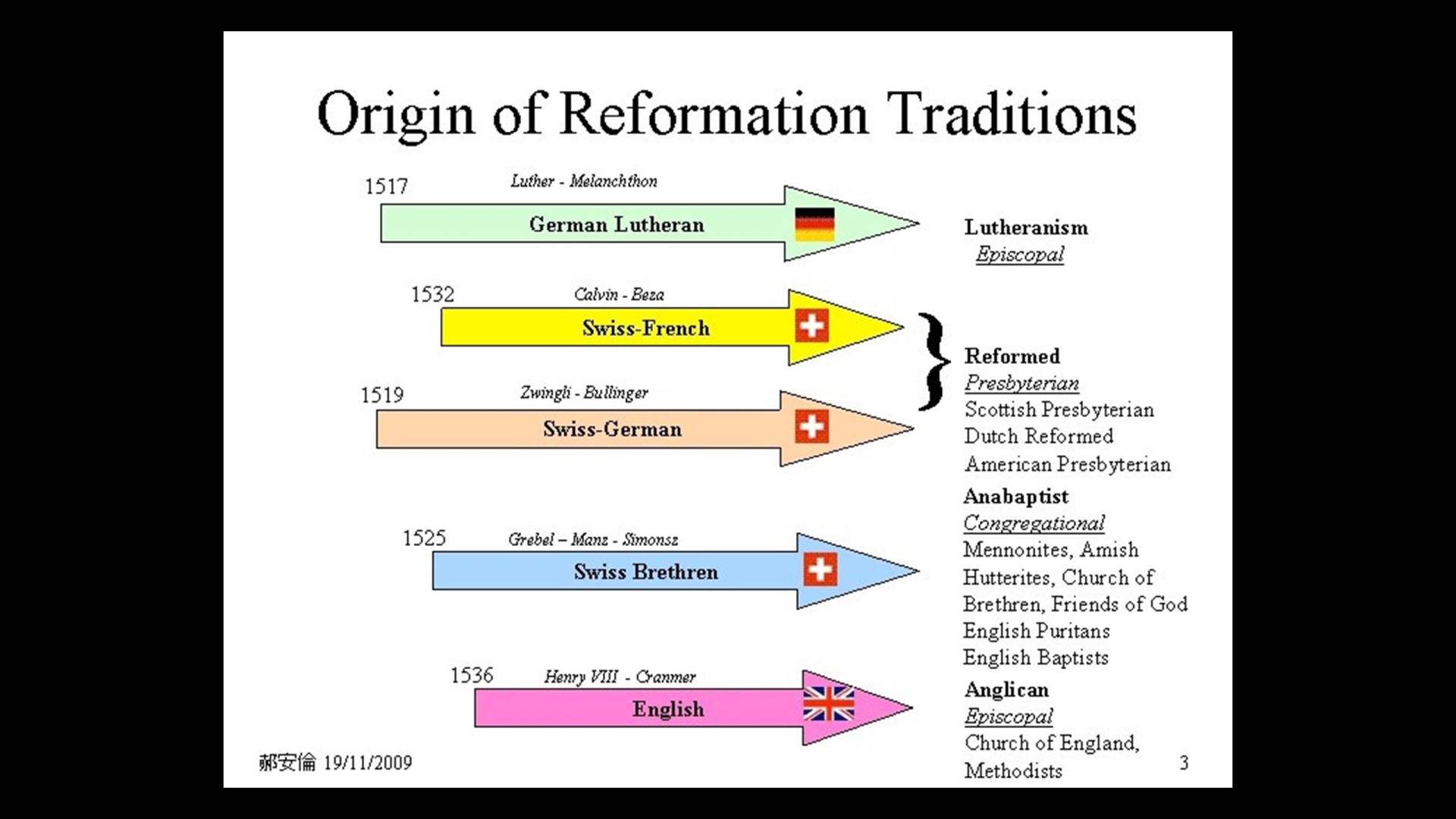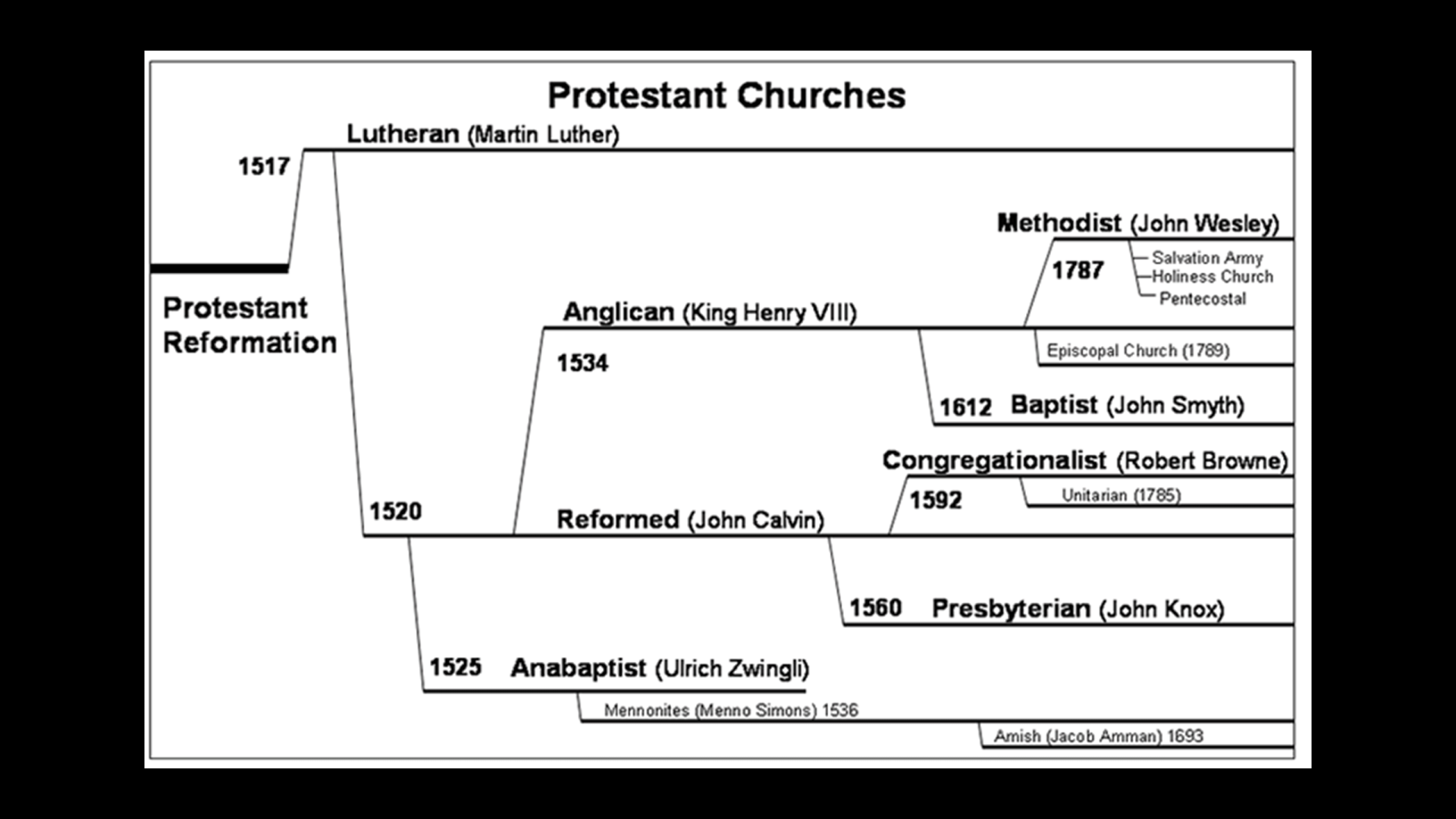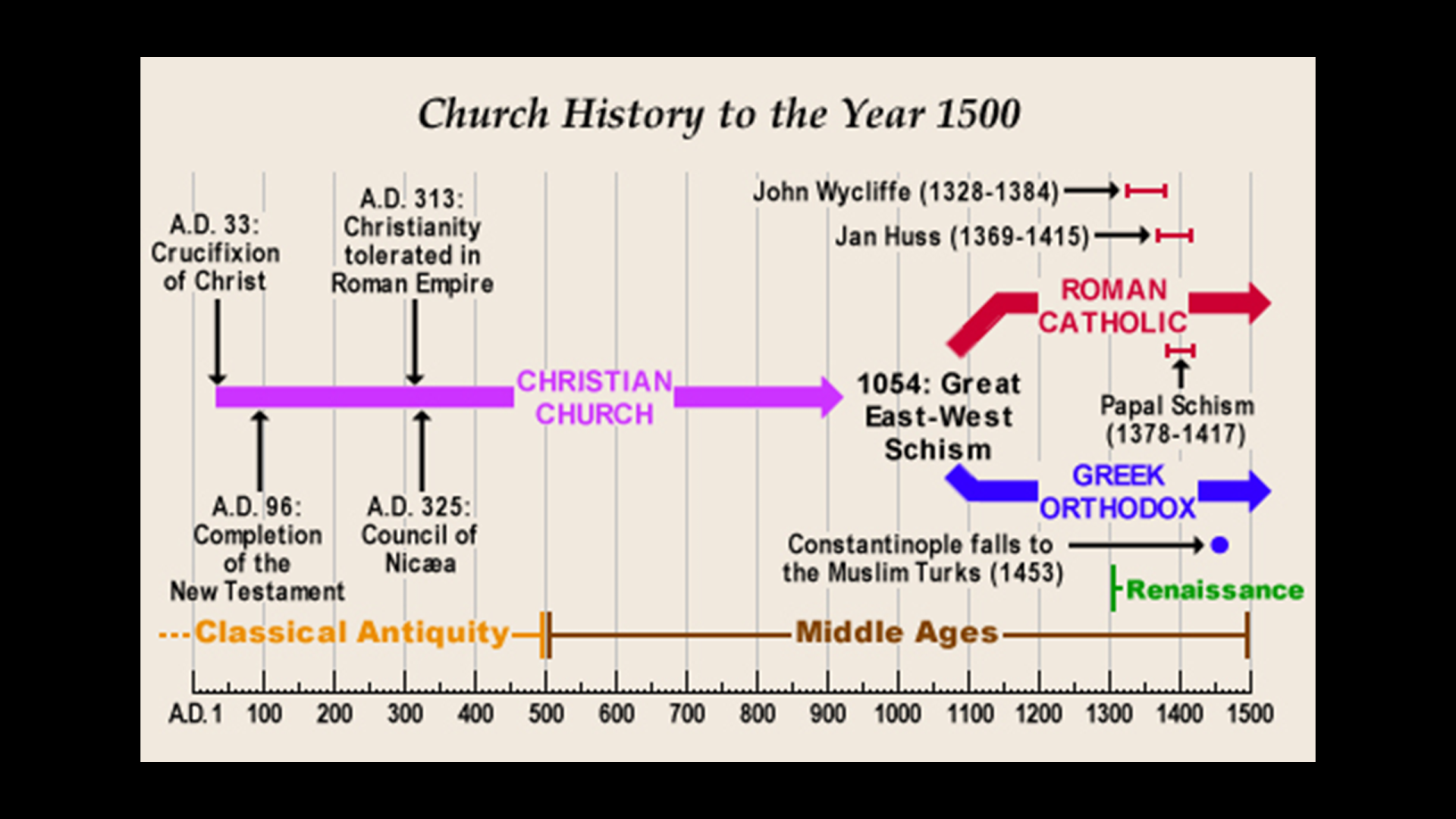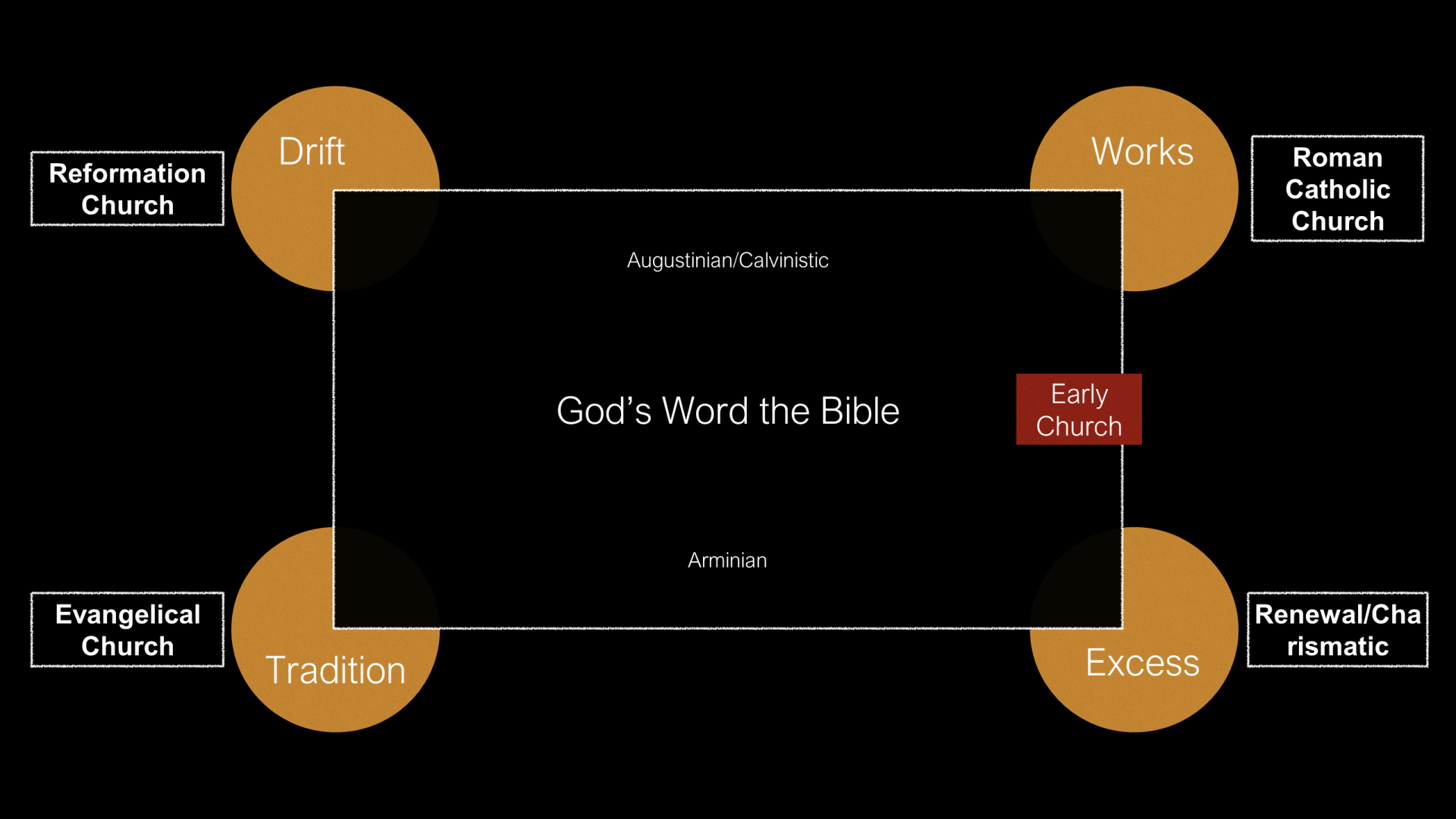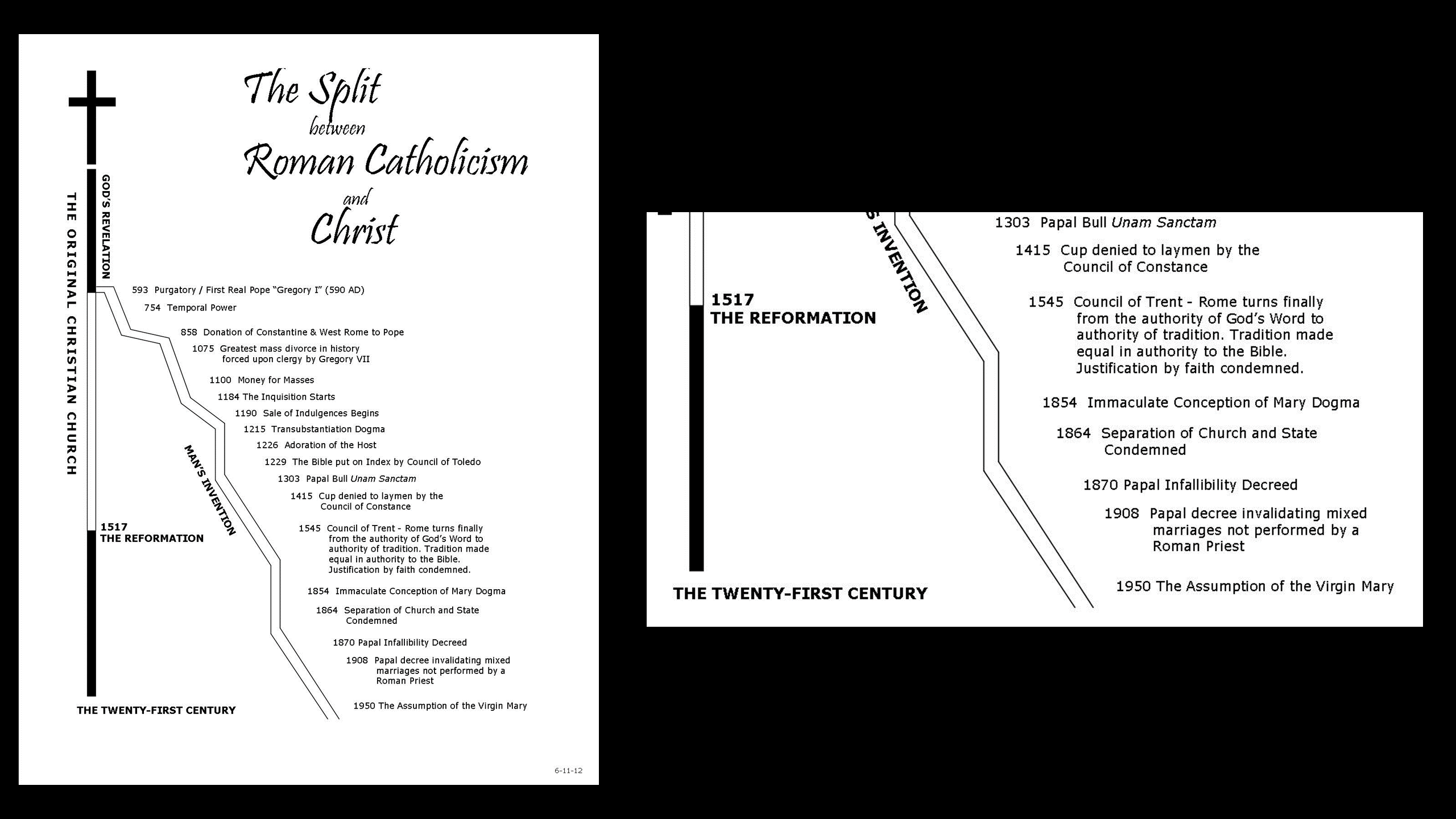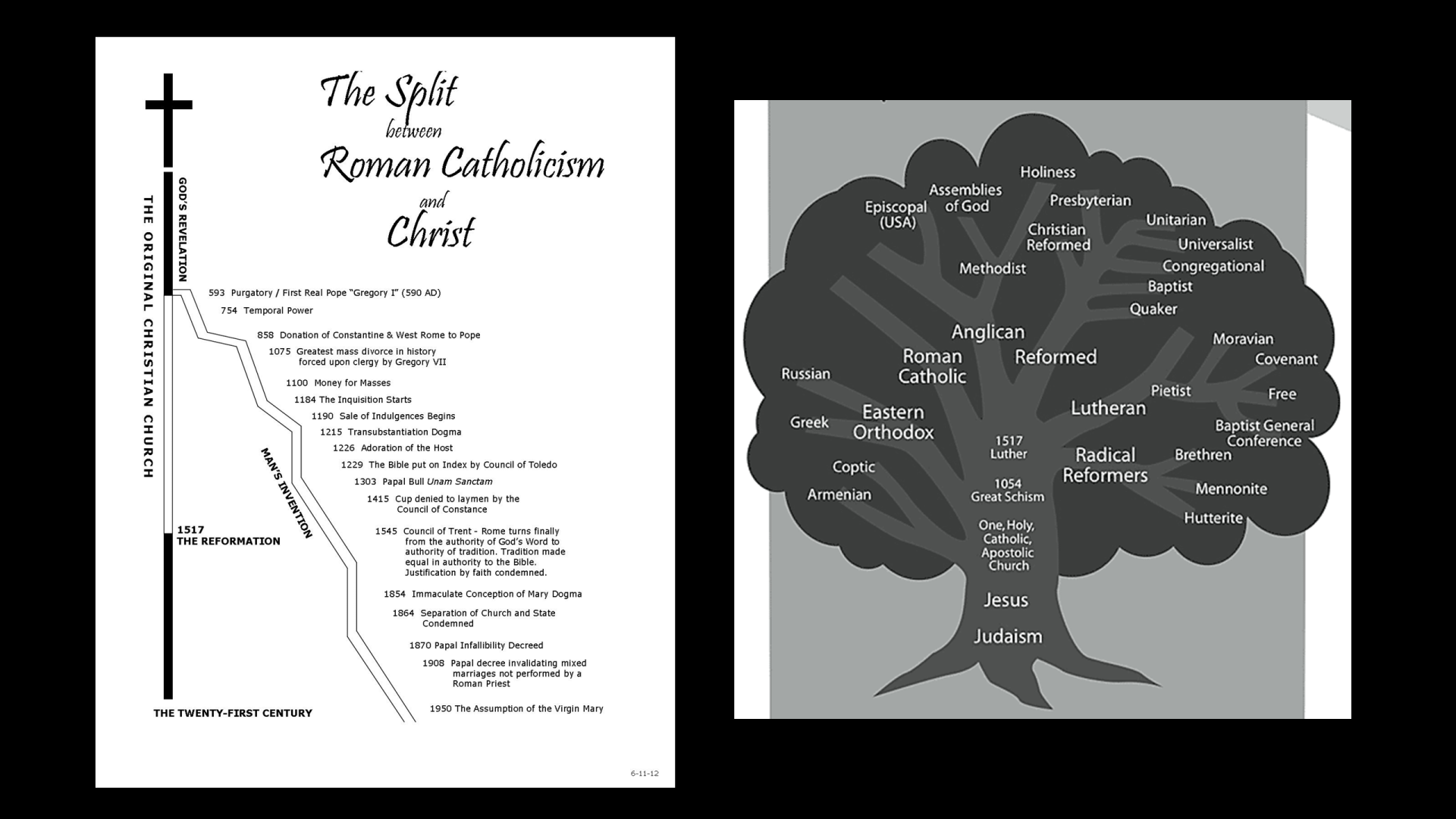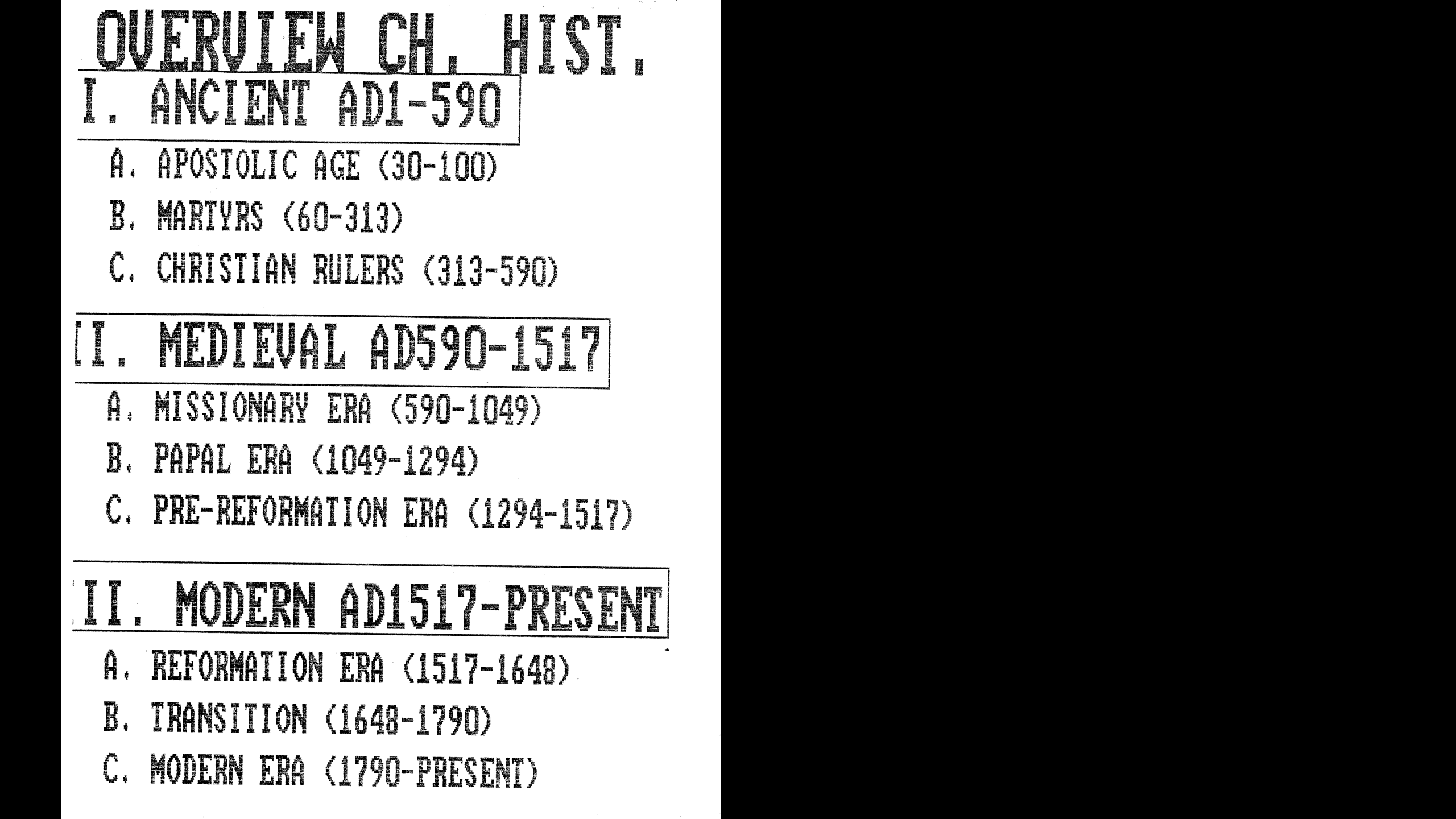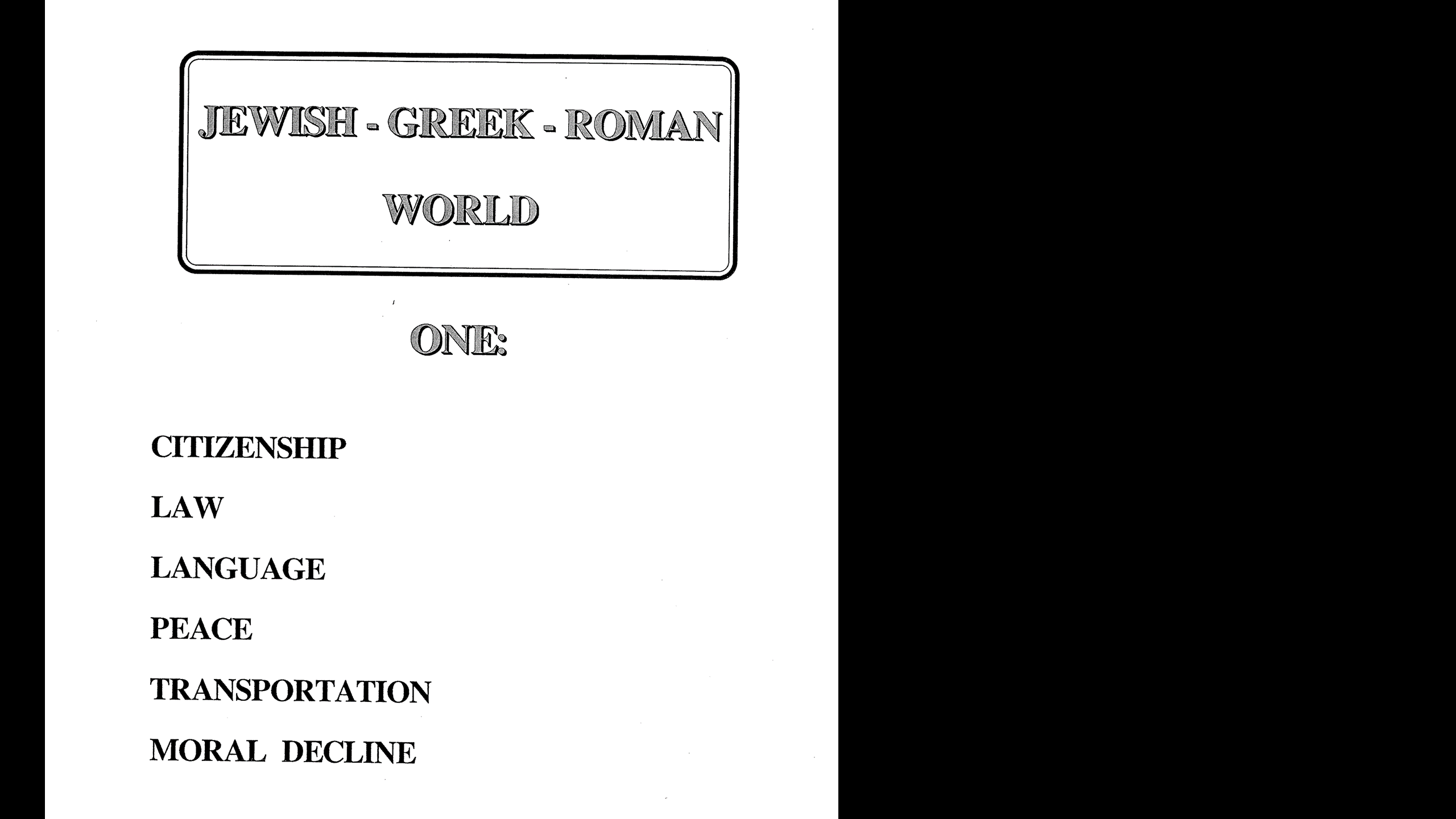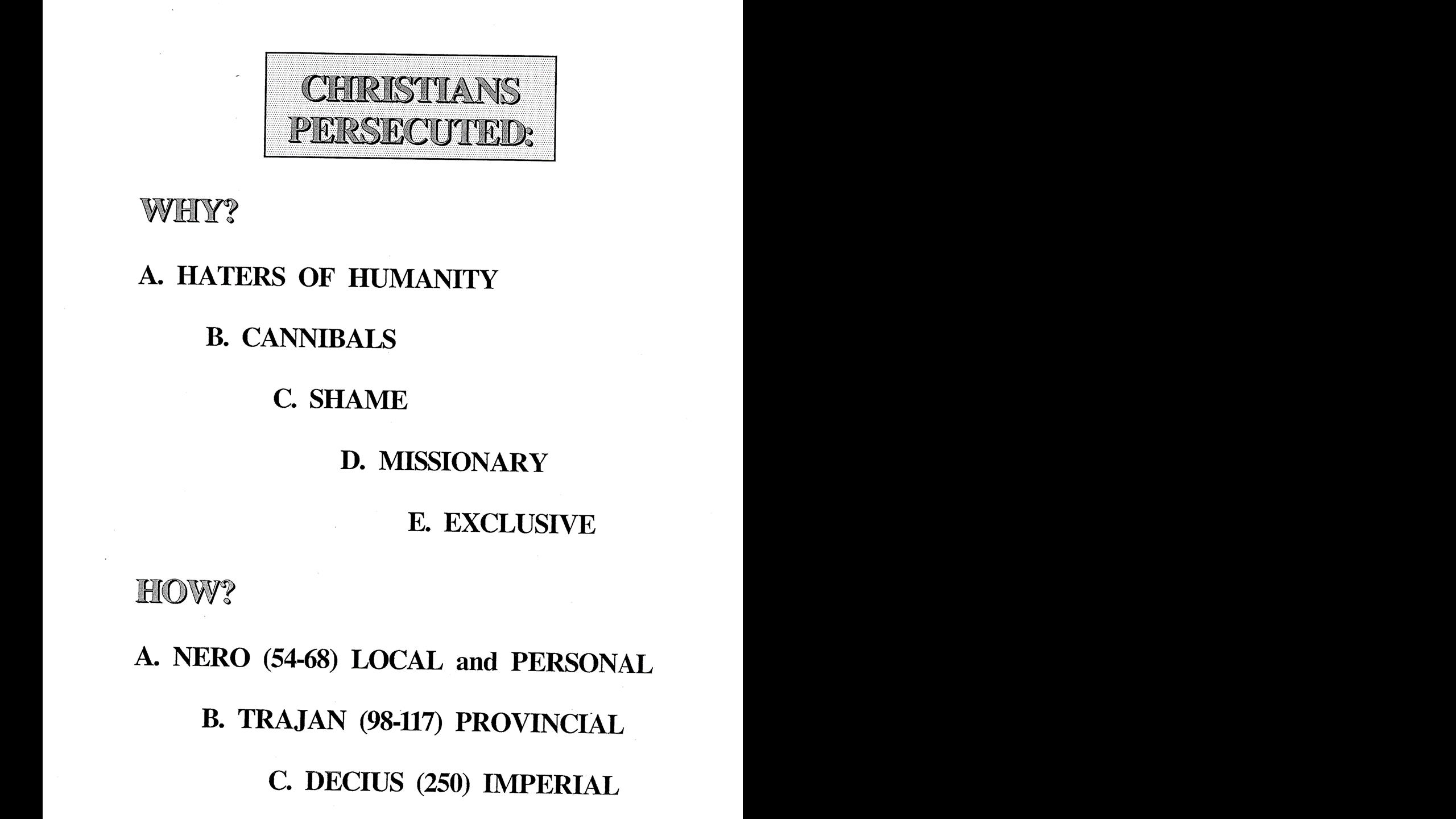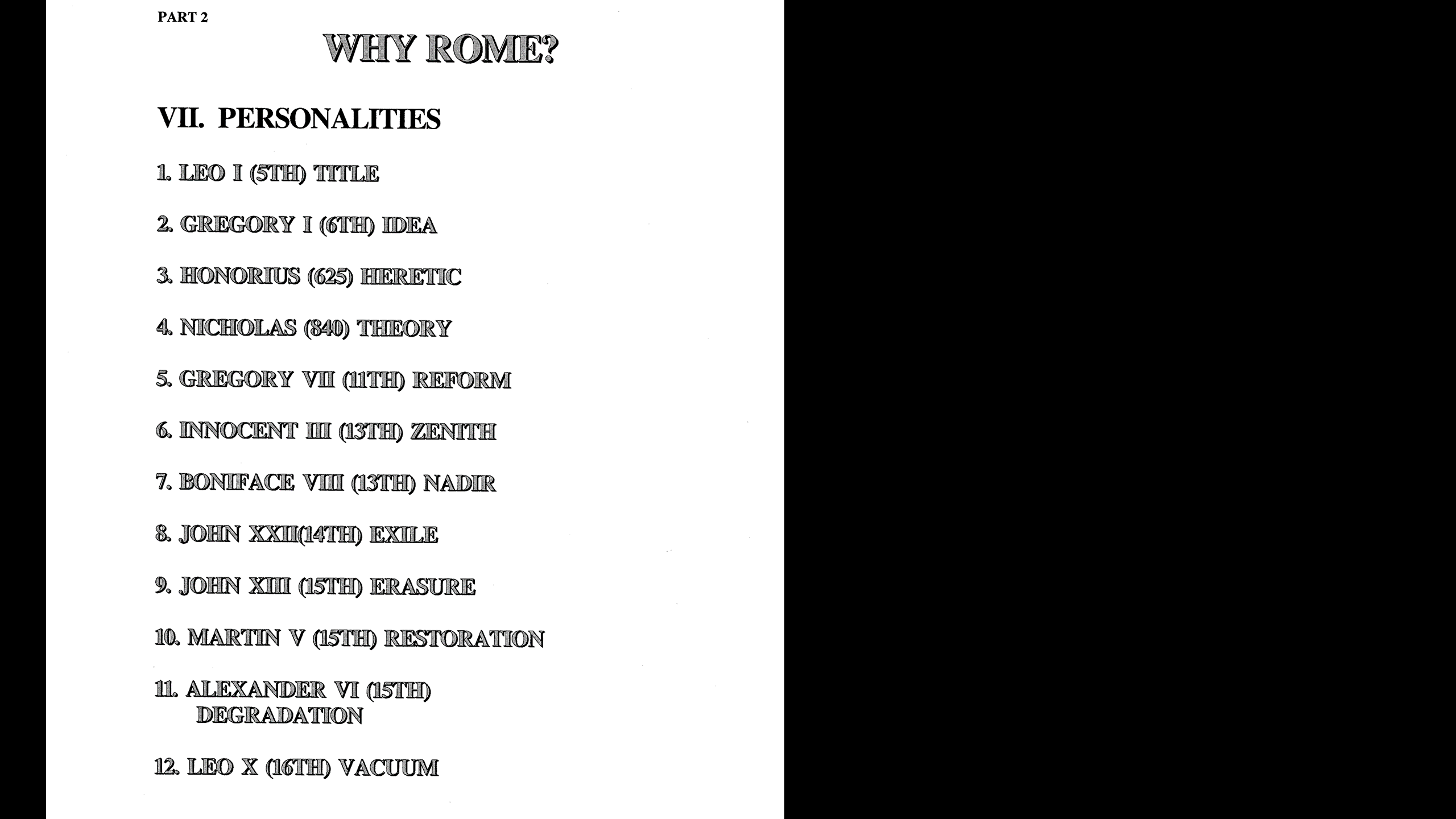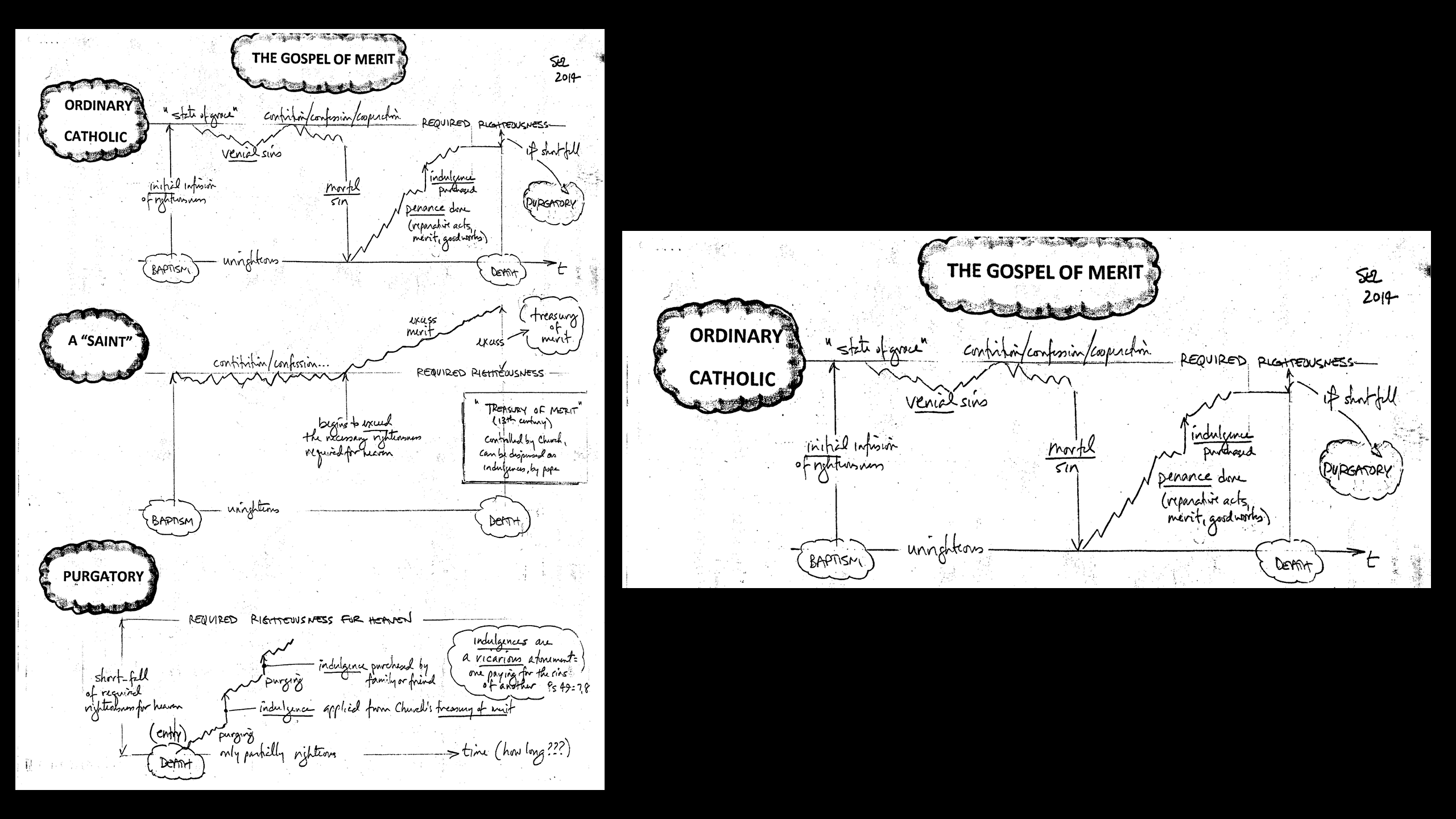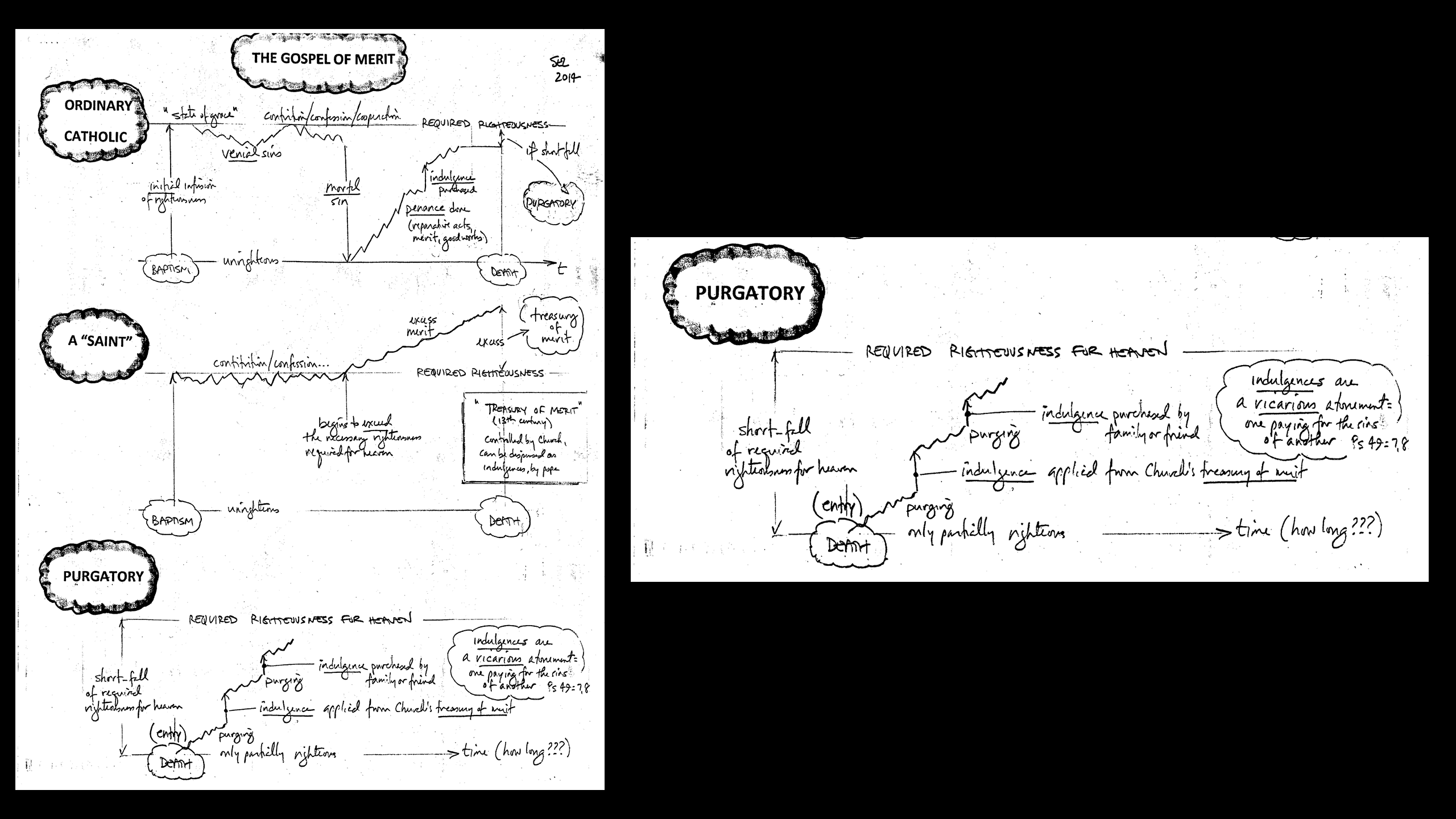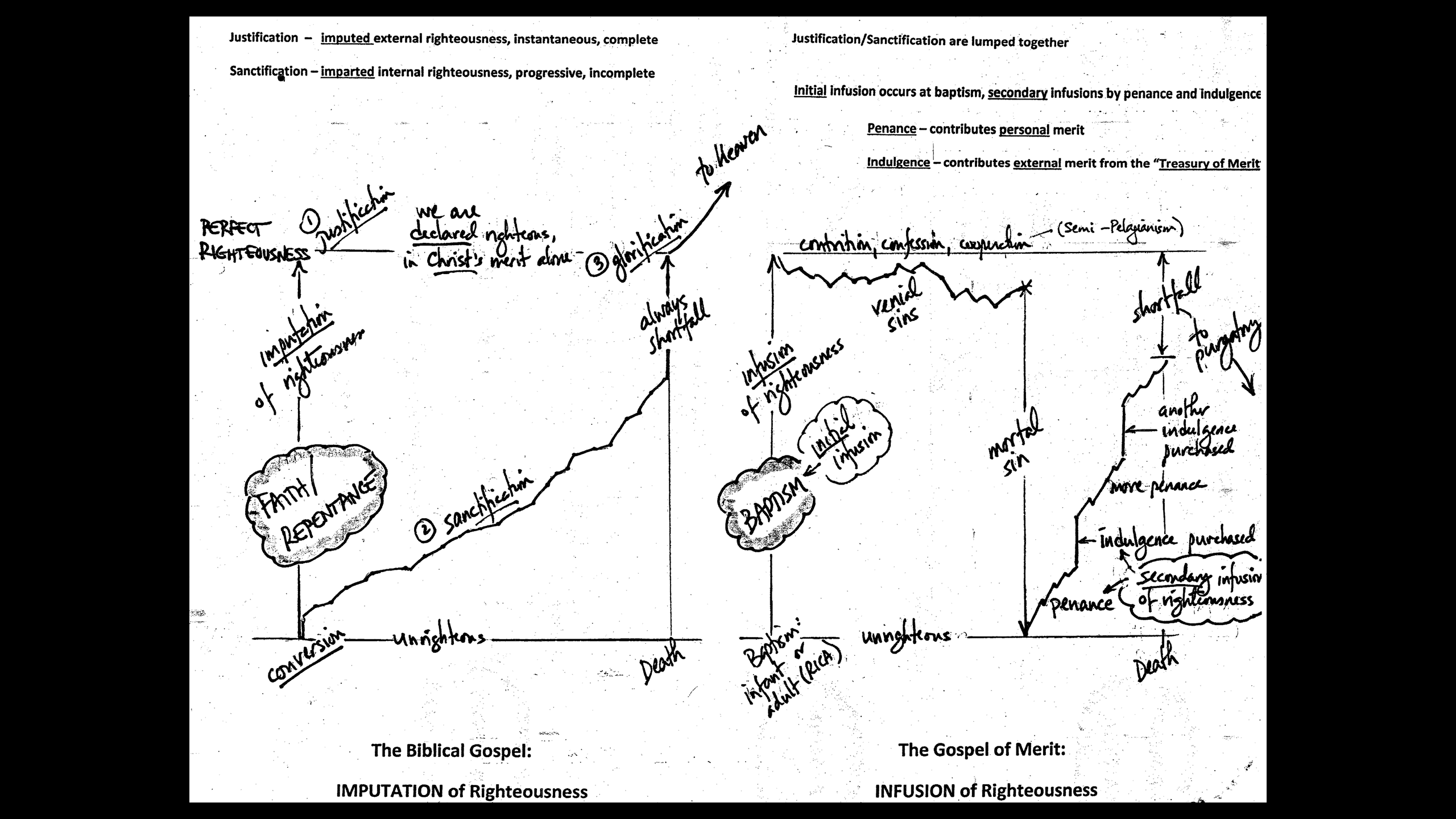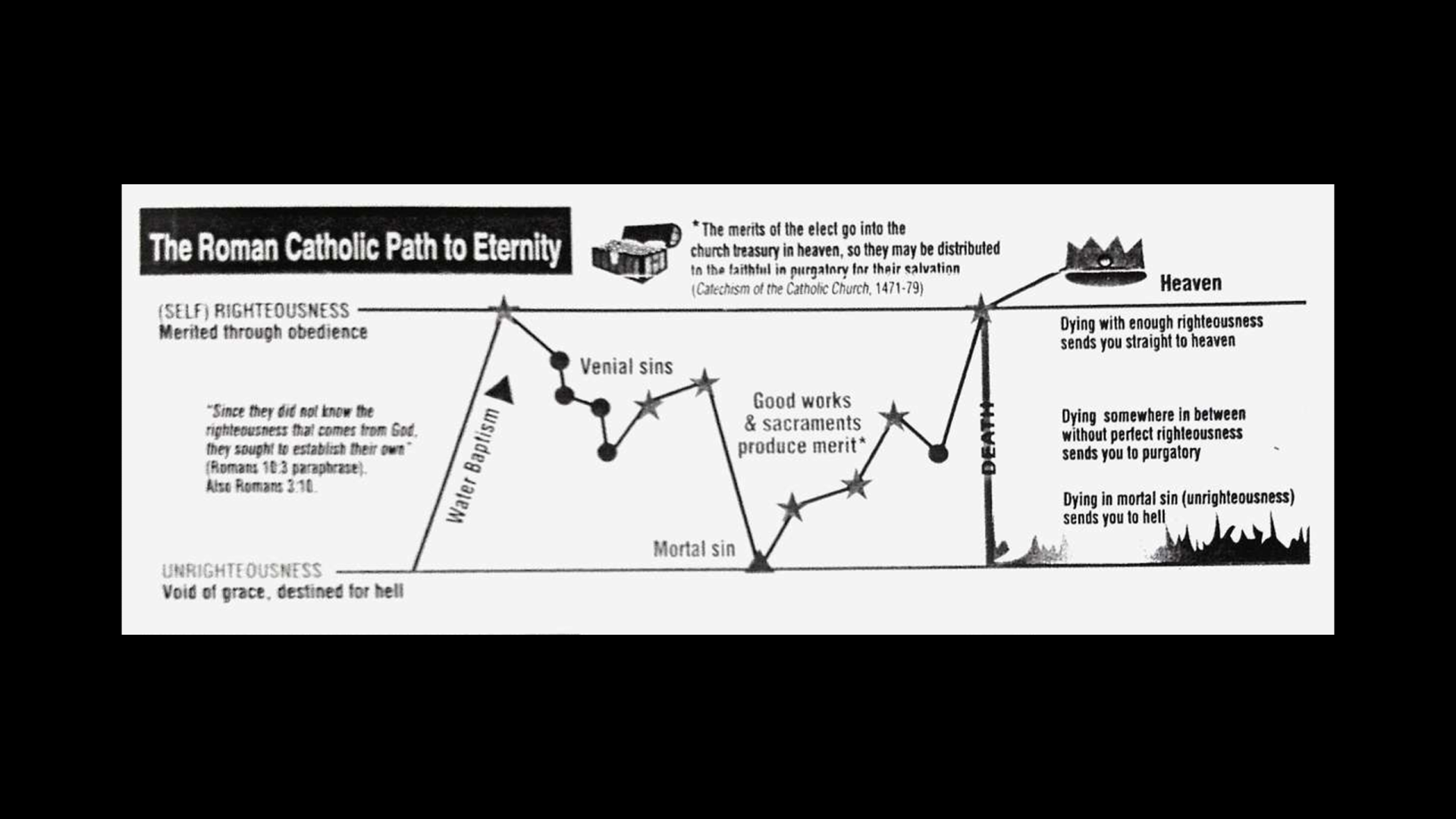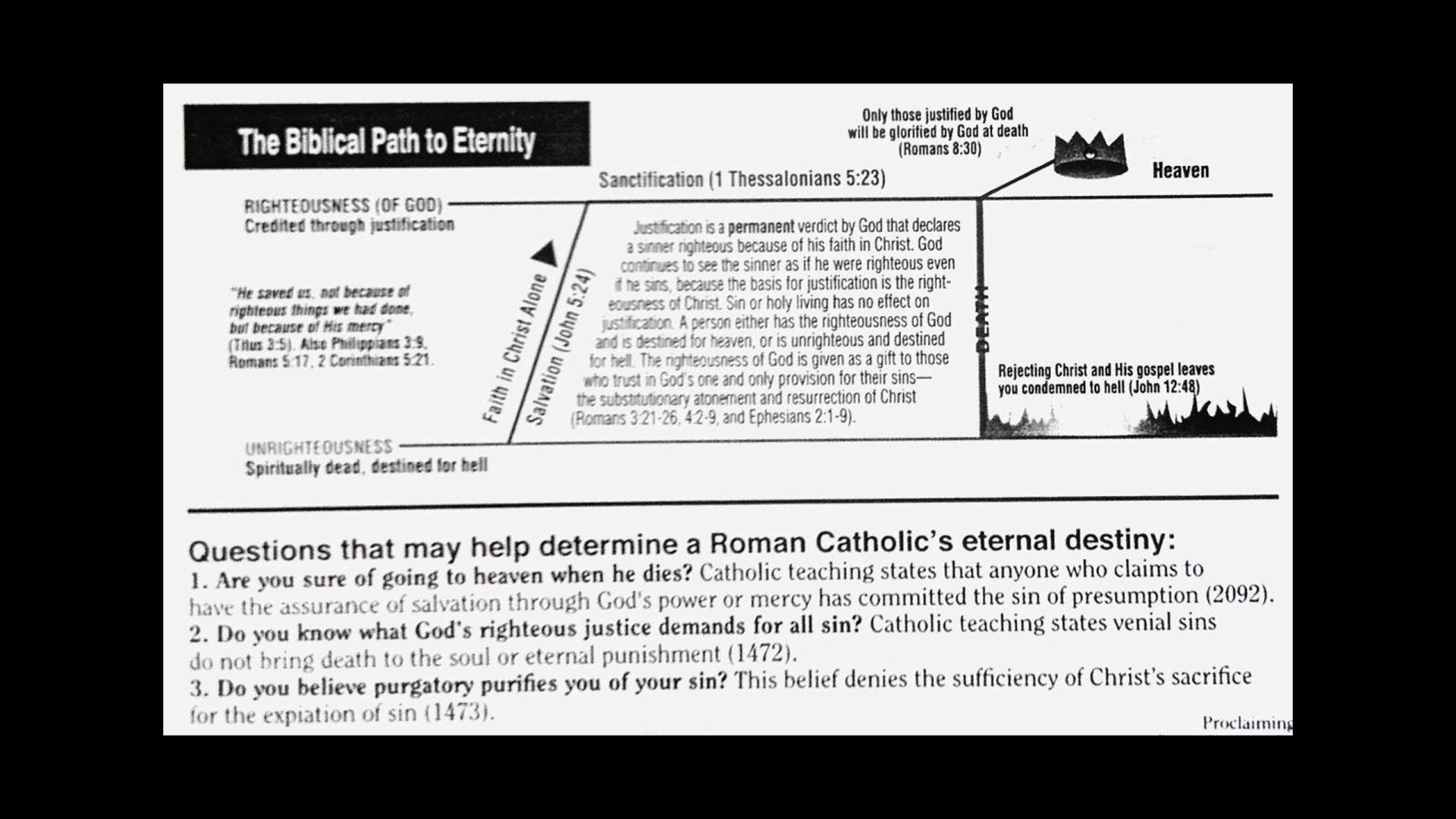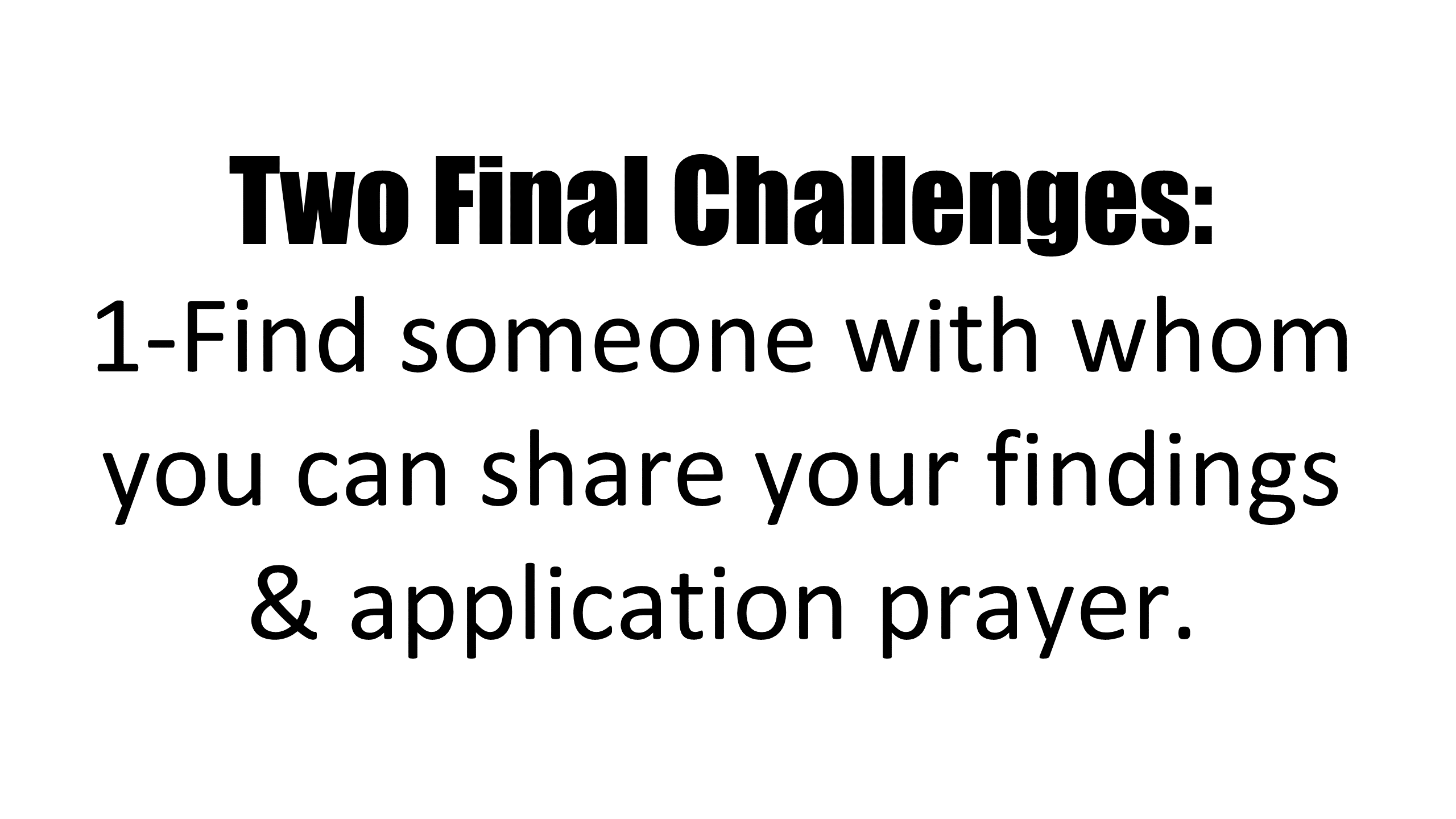If the YouTube video above is not available, here are two other ways to view:
THE ONLY SACRIFICE FOR SIN
FTGC-44
220101AM
The Book of Hebrews has 13 chapters and 303 verses, but chapter 10 contains two vital truths that we each much heed. 1). First, God has only one road, one way, one plan of salvation and it centers on the death of Jesus Christ on the Cross—ONCE as the lamb of God offered for the sin of the world. Satan invented RELIGION to hide that eternally securing truth. 2). Second, our lifelong assignment from God is to be constantly looking for opportunities to STIR up the spiritual lives of believers around us. It is our shared life with each of the other members of the Body of Christ.
Transcript
John Barnett here and welcome to our study of Hebrews chapter 10. Right behind me are the 52 greatest chapters, that’s what FTGC means for those of you that are just here for the first time. You’re actually in the 44th of 52 weeks of going through the entire Bible by examining and studying and summarizing the key chapters, the key doctrines, and all of the background that surrounds it. The chapter we’re studying is Hebrews 10. Part of this study is to summarize the chapter in just a phrase, a sentence, or some brief statement. I wrote that Hebrews 10 is about the only sacrifice for sin. The emphasis there is only because that’s what Satan’s religion is trying to obfuscate and confuse people about. Religion makes humans try and find their own way to God and that resonates in the time we live. Everybody wants to do it their own way and there’s such individualism. God said, no, I would not like any individualism. I don’t want your way. There is one way. “There’s none other name under Heaven given among men, whereby we must be saved” and that’s Jesus Christ and His one and only sacrifice for sin. That’s the first half.
The second half is the job that God has for each of us to do who comes to know His Son, the Lord Jesus. Bonnie and I started this morning praying for you. After studying all week long and reading through this passage and writing things down in our notes I said to Bonnie, I said, this chapter has blessed me personally. A little bit later, I’m going to talk about how the Lord changed my life when I was in Bible school through memorizing Hebrews 9 and 10. I’ll tell you about that. It’s blessed my life, it’s blessed our life as a couple, all the different truths in this chapter. It’s been a tool God has used through us in ministry to others. That’s what I want to share.
Real quickly, our job that I talk about here, I’m going to go through in detail. It’s us getting used to what God’s looking for in our lives. God wants us to stir up those around us, to love, and to good works. How do you do that? You ask them what they’re eating. What are you reading in the Word to feed upon your soul? What are you chewing on? What are you memorizing and meditating upon to transform your life? The way God changes us, the way He chips away, the master sculptor, the block of stone. What He uses is His word that first we eat and then we mentally learn how to chew it up, how to digest it through memorizing a passage and then meditating upon it.
Then breathing. If a person’s alive, they’re breathing. They can be alive and not be eating at the moment. They can be alive and not be chewing at the moment. People are checking if you’re breathing and if not, they take extreme measures. Breathing is the indication of endless life and that’s our prayers, our connection to God. What are you asking God to do through your life? We’re just seeking Him through prayer, the Lord, and saying what do you want me to do? How do you want me to live today? How can I best invest my life?
Finally, the fourth area of our job is who are you seeking to share the Gospel with this week? If you were sitting across the table, do you remember how this started? The 52-week study? I said, I would like to meet you at Panera or Starbucks or Chipotle for lunch and I want you to bring your Bible and your notebook. I’m going to speak to you, surveying a chapter, and then I’m going to launch you to study it all week long. Then we’re going to come back and discuss it next week. I want to hear what God taught you and worked in your life and showed you. If you’re sitting across from that table, I would say to you, what are you eating? Where are you reading the Word of God? If I saw you in church, if I saw you at work, if I saw you at school, in the neighborhood, and if I knew you were a believer, I’d say, where are you eating? What are you chewing on? What are you letting God change in your life through memorizing and meditating? What are you breathing out and begging God to do in prayer? When’s the last time you shared the Gospel? See, that’s how we stir people up and that’s our job.
Then over here on this side, the theme of Hebrews, and I’m going to just briefly show you the context of chapter 10 because we’re doing chapter 11 next week. It’s like a big overview of the book. The theme of Hebrews is Christ is the center of everything. That’s what Hebrews is about, Christ supreme overall. He’s the center of everything, the center of His word, the center of His creation, the center of His salvation, the center of our life and our eternity. All of that is what’s covered in these 303 verses in 13 chapters. God has only one road, one way, and one plan of salvation and that’s why the only sacrifice for sin is Jesus Christ. Then finally, God has a job for all of us to do stirring others for Him. That is what I just described over there.
Let’s go to our slides and I’m going to walk you through as we sit across the table from one another, week 44, Hebrews chapter 10. What you saw on the board is there’s only one, and that’s the keyword, sacrifice for sin. Then God has a job for each of us that we’re supposed to be doing for Him and that’s really my heart’s desire to share that today. You see where we are. We’re on week 44, Hebrews 10, Christ died once for sin, and that is as opposed to human religions and I’m going to cover that very earnestly with you about the danger of religion.
For those of you that have been with us the whole time, and those of you that are just joining us today, you are on a survey of the whole Bible. We are using a passage each week, the 52 Greatest Chapters or passages, and we’re learning how to use the devotional method. That’s how to start a lifelong habit of getting something out of God’s Word every day. What we do is make a title for the passage. We find lessons for the passage, and then we write an application prayer. The title is just a summary of what you read and it’s in your own words and I would recommend you do this for every chapter of the Bible. It will change your life. You can say, I have analyzed what every chapter, all 1,189 chapters, is about. That’s greater than knowing sports statistics or every lyric of every pop singer because it’s eternal. As we’re reading, we notice as many lessons, truths, doctrines that we can find, and then we use a study Bible.
Look up for a second. I’ll show you my favorite. You can read about it down in the description of this video. This is the MacArthur Study Bible. This is a translation of the Bible. I happen to have the New King James, but you can use the English Standard Version or the New American Standard. There are many versions, good translations of the Bible, but what’s special is, do you see this? Over here is the introduction of the book, here’s a map of Corinth. I just opened to 1 Corinthians and over here as a summary of the whole book of 1 Corinthians and at the bottom are 25,000 footnotes. This Bible is a complete Bible school education in one little package. I carry this with me when I travel, I use it every time I’m studying, I look up the background, the context, I love the maps. I commend that to you. Back to the slides. Then after we title it and get our lessons, this is the key. This is what the devotional method is all about. Write out a prayer where you ask the Lord to unleash one or more of these truths or lessons that you’ve found in your life. That’s where life change takes place.
I told you we’d survey the whole book of Hebrews. Actually, on one of our websites, we have all the courses I teach. It’s another website that you can find at discoverthebook.org. When I teach through the book of Hebrews I teach it in 10 classes, you can see here. I’m summarizing for you today part of class seven, the Christ cleansed mind and the new life only by His one sacrifice. That’s Hebrews 10. Next week, we’re going to see this from class eight, heroes of the faith, but you see this, Christ as the center of everything, the Word, creation, salvation, life forever.
Hebrews chapter 1 is God has spoken, are we listening? Hebrews 2 is the danger of drifting, Hebrews 3 is how to partake of Christ, how to enter boldly into His presence. Exercised and anchored living is Hebrews 5 and 6. God offers endless life and we’re forever forgiven, that’s Hebrews 7 and 8. Hebrews 12 is how to run the race looking to Jesus and we live for the great Shepherd of the sheep in chapter 13. I wish we could cover all of them.
I always do this when I go through books of the Bible and I’m going to do it for you today. I will show you a chapter and verse survey. This is because I’ve read the Bible enough times that I’ve got it all marked up and I have found a lot of exciting things. Here’s my Bible. What I’m going to do is I’m going to take you over to my Bible and show you these things. In chapter 10 I find great truths in 10:1, 10:7, 10:9, 10:10, 10:12, 10:14, 10:16. See these are the things that I want to point out to you, why this is such an important chapter of the Bible.
Look over here at my Bible and Hebrews chapter 10 starts on this side. There’s just a tiny bit down here. We’re in the book of Hebrews chapter 10 and verse 1 says “The law, having a shadow.” When I summarize this chapter, when I read it through, one of the times, see, I have read it several times. I have this Bible here; I have this Bible here. I just use all of my Bibles that I’ve read through, but I wrote here, God wants me to do His will. I get that from verse 7 right here. This is one of the verses. See, you can tell what verses I think are important because I’ve highlighted them here and marked them and have notes about them. I wrote do God’s will right here. That’s a theme of chapter 10. Verse 7, “Then I said, ‘Behold, I’ve come.'” This is Jesus speaking. “‘In the volume of the book it is written of Me to do your will, O God.'” I wrote here, do you remember what Jesus said in preparation for the cross in Gethsemane? “Not my will, but thine be done,” Luke 22 and verse 42. Jesus said He wanted to do the Father’s will in John 7:17, John 6:38, John 5:30, John 4:34. You can see how the more I read the more I mark, each color is a different time I’m reading. I read it through, and the red is what I found that time, the green, the blue, here’s the black. Every time I read; I find more truths that just jump out at me. Verse 7 is important.
Look at verse 9, “Behold, I’ve come to do Your will.” See, God wants us to do His will and that was Jesus’ desire. Verse 10, “By that will we have been sanctified through the offering of the body of Jesus Christ.” Jesus offered Himself because it was the Father’s will, but look at this, “once for all.” Now, do you see this? I circled the once. See this line? “He offered one sacrifice for sins forever.” Now, look at this. “For by one offering He has perfected forever those who are being sanctified.” Do you see this 1, 1, 1? That’s what you saw in the title. The sacrifice, the one sacrifice on the cross Jesus made to pay the price for our sins. When He saved us, look at this, I will put My laws into their hearts, so we have God’s word written into our hearts. Verse 14 “For by one offering He has perfected forever those who are being sanctified.” That’s a description of people that are saved. They’re being sanctified. That’s wonderful.
Here’s a verse that means a lot to me. Verse 22, “Let us draw near with a true heart in full assurance of faith, having our hearts sprinkled from an evil conscience and our bodies washed with pure water.” Now, backup. I know we’re covering chapter 10, but chapter 9 verse 14 is what triggered a great work of God in my life. I was a 20-year-old young man in college, Bible school, and I was memorizing the scripture and I got to verse 14 here and this is what it says. “How much more shall the blood of Christ, who through the eternal Spirit offered Himself without spot to God, cleanse your conscience from dead works to serve the living God?” I wrote here, there’s a danger of operating with an uncleansed mind. God wants to cleanse us from dead works. He wants to cleanse us from sinful things from our past and from what we run into every day, walking through life. If you remember, He told the disciples they needed their feet washed. They’d already been completely bathed, they were already saved, but regularly they need their feet washed. This is a foot wash, actually it’s a mind wash right here.
We understand through His once and for all sacrifice and look, it’s over here. This once is all the way through here, chapters 9 and 10, this one sacrifice of Christ, but look at the result. Chapter 10, verse 22. “Let us draw near.” If you don’t feel close to the Lord it’s because you need to let Him cleanse you from dead works. “Let us draw near with a true heart in full assurance of faith.” How? “Having our hearts sprinkled from an evil conscience.” That’s what 9:14 talks about. “And our bodies washed with pure water. Let us hold fast the confession of our hope without wavering.” What is that talking about? Look up here for just a second. I call this mind cleansing. I used to share this when I was a youth pastor, cleaning out the files. When you’re getting rid of your computer, selling it or trading it in, or your phone, you wipe it. That idea of wiping. You don’t want someone to get your financials or some personal information.
There’s something also God is concerned about. He bought us, owns us, but we have to choose to wipe the files from our old life out of our minds. Even though we’ve been saved, we still have memories. We still have what are called triggers to past things that we have done, that we have seen, that we have heard. Do you understand what Satan does? Satan has these fiery darts. Imagine my stylus here is a dart, a very sharp object, and Satan can ignite it. Even though we’re saved, he can shoot that dart at us and it can hit these memories, these thoughts, these things we’ve said and done that we have not surrendered for the Lord to cleanse and clean out of our minds.
That’s where I was as a 20-year-old student in Bible college. I was sitting there learning the Greek language, surveying the scriptures, and I would be right in the middle of class, and in my mind would flash this memory of when I was a truck driver. For two years, before I went to Bible school, I used to drive a truck. I used to back my truck into the loading dock, and I would jump out and I put my clipboard under my arm, and I’d run up to the desk every time I delivered to the backside of these companies to the loading dock. This was in the 70’s, 50 years ago, I think it’s different now that everybody has a phone in their pocket. It used to be before phones and the internet and all that, that men would have the floor to ceiling life-size pinup girls. I would come up to the desk and go, whoa, and I’d see that in the distance. I would look down and hand the clipboard over. You’re aware it’s there and you’re trying not to think about it and so you’d run to the men’s room. That was worse. They had many pinup girls there and all the magazines, the pornography magazines, were stacked in the bathroom. When I went to Michigan State University and you went into the restroom, every wall was plastered with what they called pinup girls. Do you know what God calls it? Pornography. Do you know what He calls it? Fornication, thinking of the sin of fornication by looking at all that.
Those things after years and years of being in the environment, if you’re not careful and keep your eyes on the floor, I don’t think they ever had any on the floor, it’s just residual there. What happens is it builds up and Satan can shoot a fiery dart. All of a sudden you find yourself reliving some past thing you did, or looking in your mind at images. How do you get rid of those? That’s what the scripture is about. The one sacrifice that Christ made for sin has a component where if we ask Him, Hebrews 9:14, “how much more shall the blood of Christ, who through the eternal Spirit offered Himself without spot to God, cleanse your conscience.” He can wipe the files. Did you know we can hold, I don’t know what it is, a quadrillion or an octillion different video files in our minds? Those files can have sights and sounds. I just read in Scientific American that smell is one of the biggest triggers. Some people smell things and they think of everything in the past. Jesus wants to cleanse away those things that fiery darts can ignite.
Back to your slides. That’s the secret of drawing near to God. That’s what chapter 10 is all about. We want to do His will. We want to do His will. We trust His sacrifice. Verse 22 we can draw near to Him. What I just read to you through the work of the cross and His cleansing. As we’re finding all these truths, look up, here’s my journal. I’m going to show you my journal. Let me find today, Hebrews 10. I have my title, my summary, my lessons, and my prayer. Let’s go through those.
Look back at the slides here. I’ve typed them out from my journal that I’ve worked on all week. I wrote 52 Greatest Chapters, week 44, Hebrews 10. Here are the different titles. You don’t have to do all of your titles; I just do all of them. Drawing near to God, that’s the first one I found. The only way to God, that’s the second one. Christ died once and for all for sin, that was the third one. Then my job for life was assigned by God.
Here’s my summary of the book. The book of Hebrews has 13 chapters, 303 verses, but chapter 10 has two vital truths that we each must heed. Number one, God has only one road, only one way, only one plan of salvation. It centers on the death of Jesus Christ on the cross once. Remember chapter 9 and chapter 10, you saw my Bible, I circled all those one time, one time, one time. He was the Lamb of God offered for the sin of the world, but Satan wants to confuse and corrupt that message, so he invented religion. Religion is humans devising their own way to God. Satan did that to hide the eternal securing truth of salvation.
Right from the beginning with Cain and Abel, think about it. Do you remember Cain and Abel in Genesis 4? It was a long time ago; we were back there in the Fall with the temptation to sin. Cain and Abel, remember God told them what He wanted. He wanted a substitute. He wanted an animal slain as an offering brought to Him. What did Abel bring? Abel brought a lamb, just like God wanted. Abel offered that lamb as a substitute, as a sacrifice for his sin, which ultimately was a picture of Christ’s. His only sacrifice for sin is the Lamb of God. What did Cain bring? He brought his produce. He wasn’t good at raising animals like Abel or at least finding one. He was better at gardening. What he said is, God, do you have to bring an animal? I want to bring my pumpkin or my squash or my tomato. It doesn’t matter what he brought. It was that he devised his own way instead of following God’s way and God said, there’s only one sacrifice for sin. Look back at the notes. That’s what Satan invented his religion from. It’s called the way of Cain. It’s doing it my own way. It’s coming to God, finding my own path and it’s Satan’s lie. It’s getting louder and louder in this generation where we live. Everybody says, oh, we want to find our own way. Second, Hebrews 10 is about our lifelong assignment from God to constantly be looking for opportunities to stir up the spiritual lives of believers around us. It’s our shared life with each other and the members of the body of Christ.
Hebrews, look where we are. We’re in the general epistles. The overview of the New Testament. We have the Gospels and Acts. We have Revelation. Then we have that huge chunk of Paul’s epistles. Then we have all those other epistles, but this is something fascinating. Two of Paul’s epistles contain the quote from Habakkuk 2:4 “the just shall live by faith.” That is also quoted in Hebrews. That is why some people think Paul may have written Hebrews, but I just showed you that Romans, Galatians, and Hebrews all contain this quote from Habakkuk.
Here are the lessons out of my journal and I typed them up for you. Number one, works can’t save anyone. That’s what verses 1 through 4 are about. Christ is my supreme example. Remember, He came into the world to do God’s will. Make sure you mark that, make sure you highlight that as I showed you. It’s kind of a reflection back to what Jesus said all the way through the Gospel by John.
Here is a central point. Religion is Satan’s lie to hide God’s free gift. Christ’s offering was enough to completely remedy our sin problem. That’s what it says in verses 8 through 10. Then remember on the cross, Jesus said it is finished. Hebrews 10:11-18 says Christ’s sacrifice was one time. You say, what do you mean by that? Religion says you just have to keep trying to do more good and put it on the scales and balance out your sins. No, Jesus offered one time, a sacrifice, then He sat down at the right hand of the Father because it was finished. Why is that so important? How does God compute the cost and payment of our sin? When I’m sitting at lunch or for coffee I always turn over the placemat and give a brief overview of Church History, so I’ll do that with you. I contrast human achievement and divine accomplishment. The plan of salvation God has, which is a divine accomplishment, and then religion, which is a human achievement. I use all these verses.
Let’s just briefly go through that. In Matthew 7, turn in your Bible with me to Matthew 7, make sure you mark this. Okay. That’s why these key chapters, if you follow through with all this cross-referencing, cover the whole Bible. Chapter 7, and I’m going to really start in verse 21 here. “Not everyone who says to Me, ‘Lord,'” Jesus is speaking, “‘shall enter the kingdom of Heaven.'” Oh, so there are false professions. People who say Lord, but look at verse 21. It’s not those who say that, “but he who does the will of My Father in Heaven.” Salvation is when we want to do God’s will, not our own. I wrote that right there in my Bible. Jesus said this, “Many will say to Me in that day, ‘Lord, Lord, have we not prophesied in Your name, cast out demons in Your name, and done many wonders in Your name?'” Jesus says you did. “And then I will declare” verse 23 “to them, ‘I never knew you; depart from Me, you who practice lawlessness!'” Wow. The four worst words ever heard. Wow. I never knew you. “Therefore whoever hears these sayings of Mine, and does them, I will liken him to a wise man.” Look at what people said in verse 28, they were astonished at His teaching. They never heard this before.
Back to the slides. In Matthew 7 Jesus explains each of our lives is like one or the other, these two contrast. Starting in verse 13, Jesus said there are two roads in life. Two trees, two relationships, two destinies. Okay. Now let’s see how to mark those. Look at verse 13, “enter by the narrow gate.” See the two roads. “You’ll know them by their fruit.” There are two trees. “Not everyone who says to Me, ‘Lord.'” There are two endings. “Therefore whoever hears these sayings of Mine, and does them, I will liken him to a wise man who built his house in the rock.” Two foundations. God says, and actually, he starts back here, there are two attitudes and two masters and two types of eyes and two banks. All of the Sermon on the Mount is a contrast.
Back over here to the slide. Everyone you meet is on one of two roads. Their lives are bearing one of two kinds of fruit. Let me show you that in the chart. There’s the wide road, the narrow road. There’s the wide gate, wide entrance, there’s the narrow entrance. Jesus says it is black and white. There are only two choices, Me or not Me, your way or My way. If you’re on the wide road, then your destination is death. You’re surrounded by many people. You’re trusting in what you do. Your salvation in your mind is about whether you’ve done enough. You’re a part of all religions. Most people say you have your way, I have my way. This is how I was born. I was born following this. I wanted my own way. By the way, you don’t have to do anything to stay on this road. You just float. That’s called being lost. Following the course of this world, the god of this world, the prince of the power of the air. If I’m on this road, I think I have to pay in full for my sins so I’m always hoping I’m doing enough. If you do nothing, if you go with the flow, you’ll end up being thrown in the Lake of Fire, Jesus said. That’s the whole Sermon on the Mount.
Then Jesus says, this is my desire that you come on the narrow road. You have a new destination, it’s life. You’re surrounded by a few. You’re trusting in what the Lord accomplished. You’re saved by His grace and your faith in that work of God. You only know about this through the revelation of God and His Word. You have to be born again. That means you get a new operating system to follow this new way, you can only do it with a new heart. The way you get a new heart is you repent. In other words, you have a change of mind that leads to a change of behavior. You realize that your sins are paid in full by Christ. How do you get to the narrow road and the narrow gate and all that? You listen to God’s Word, you call on the name of the Lord, you repent of your own way, and by faith, you get forever forgiven and forever secure. See the difference between religion and salvation? This is religion, this is Satan’s way. This is salvation. The wide road is the road of religion, human achievement, everybody’s on it. The narrow road is a difficult way to Christ and salvation.
By the way, were people saved differently in the Old Testament? No. No one was ever saved by offering some animal. They offered the animal as a substitute looking forward to a person, a Messiah. They had God’s Spirit temporarily come upon them and Jesus was hidden. They never heard of Him. Paul said that other generations were not made known to them, but they were looking forward to it. They didn’t really know His name was Jesus. They did know He was the Christ, most of them. For some of them, like the people of Nineveh when Jonah came and preached to them, all he said is repent and believe in God and trust Him. They just believed in this one that would take away their sin. Look, here’s the cross and the New Testament. It’s the same thing we have. They had personal knowledge. We have a personal relationship by looking back. They looked forward over here. We look back to what that one sacrifice accomplished. The difference between the Old Testament believers and the New Testament believers is that the Spirit temporarily came and went from them. God’s Spirit lives permanently with us and reveals Christ to us. That’s what Ephesians says. He “has now been revealed by the Spirit to His holy apostles and prophets” and “they have shared it with us.” I saw that in a message and I liked the way they put it.
Church History talks about the inroads of human religion and how it’s corrupted. When I have question and answer time, I usually draw this chart. I’ll show you a couple of versions of it. I say that right here is the early church, it got corrupted until the time of the Reformation. Then we have the Roman Catholic Church. We have a kind of Evangelical Church. We have a Charismatic group. The Reformed, the Roman Catholic, the Charismatics, and the Evangelicals. That’s a basic overview of all of Church History, but this is what I show. I show that the early church, right here, had parts of what they believed were biblical. See this square here is the Bible, see the Word of God. Within the Word of God, some people are Calvinistic, some people are Armenian. Huh. That’s interesting. The Armenian think the Calvinists are of the devil, the Calvinists think the Armenians are of the devil. Yet, both of them find their doctrines in the Bible.
Look at the early church. This is a part of what the early church practiced that was biblical, but they had no biblical parts in what they believed, which formed into the Roman Catholic Church. By the time we get here to the Reformation, here’s the part of what the reformers taught that was biblical. However, they had all this other stuff that was like baggage. If you remember Martin Luther didn’t like the Jews and he said, you can kill the Jews. Terrible stuff. Calvin burned heretics at the stake. Wow. Those are things that we shouldn’t be doing. Then we get to the Evangelical years, the great evangelism of Moody and Tory and Billy Graham. They had the Evangelical Church, which all of this is biblical, but look at this, there are so many traditions that aren’t in the Bible. You say like what? Oh, how about Sunday school. Is that in the Bible? Yet, some people say Sunday school is more important than church. Training people is very important, but Sunday school is not the gathering of the body. You can have these non-biblical traditions that aren’t wrong or sinful. They’re just not on the same level as the Bible. The same thing is true here with Charismatics. They have a vast amount of truth like the early church did, the reformers do, like the Evangelicals do, but they also have this extra stuff that is outside the scriptures.
Here’s what I say. The early church grew into a combination of the truth plus the errors of Romanism. It was drifting along till we got to the Reformation, which brought back the truth but brought even some of their theological drift. For example, the baptism of babies and covenant theology, and that children could be halfway brought into the church by the parents, which led to a lot of kids thinking they’re saved and not. Then we get to the Evangelical Church days, and they return to the preaching of the Word. The Evangelicals had this idea that if you pray this prayer, or if you come forward, or if you make a decision. All of those things began to weaken the Evangelical Church. The people say, oh, I’ve done that, I’ve prayed that, I’ve got that. That’s why we have so much diversity today and confusion. See this square in the middle? Most people don’t know what the scriptures teach. They know what their guru teaches. If they’re Calvinistic teachers, if they are Armenian teachers, if they’re over here in Catholicism or the Reformation or Mainline Evangelicalism or the Renewal Charismatic Church.
All organized religions have the error of works right here. All branches of the true church have drift traditions and accesses that aren’t in the Bible. That’s just what we see in the scriptures and that’s what the Lord says that you should be a Berean. Remember what Acts 17:11 said? Examine the scriptures daily and see if what you’re taught is in the scripture. That’s one of the values of Church History, it corrects our misconceptions, it shows where the Roman Catholic Church came from. Church History also helps us understand doctrines through heresies and controversies. It helps us explain current issues like I just showed you on that square, where the denominations come from, Church History can motivate and inspire. It can teach us about where movements are coming from. It’s even very liberating when we look at Ephesians 4 to see what are the common denominators of all true churches.
I was a professor of Church History at the Master’s Seminary and this is an overview of Church History. There’s ancient history, the Apostolic Age, the martyrs, remember everybody dying in the arena. Then the time when Christianity got to be legal, and it’s called the Byzantine period where we had actual Roman emperors that were Christian. Then it launches into the Medieval Times when the Roman Catholic Church is sending out its priests to convert whole countries. That era goes all the way through the time of Martin Luther. There’s the Papal Era in Europe where the Pope actually ran Europe, they had their own armies. There’s the Pre-Reformation Era you’ve heard of Hus and Wycliffe and all those famous reformers. Then of course we have the Reformation from Martin Luther’s theses which caused religious wars. 1648 is called the Peace of Westphalia. That’s where Europe stopped fighting and tried to make everybody either Catholic or Protestant. They just settled on their own territories. They transitioned into the modern world that we see today, which had state religions, like Anglican in England and Lutheran in Germany and a state church in the Scandinavian countries, and the Roman Catholic Church in Italy and Spain. In 1790, we had the advent of modern missions and that was with William Carey and through to what we see today, the apostasy.
A lot of people wonder where the Roman Catholic Church went wrong. It was right here when they declared purgatory. It was a mixed bag from the early church through 590, but the Pope, the first real Pope, was Gregory the first in 590. He declared that you had to come to church to get indulgences so that your sins could be forgiven so you could get out of purgatory. Then it just went away from the scriptures from then on with things like the money for masses, the inquisition, transubstantiation that they change bread into the body of Christ. The Council of Trent declared anybody that wasn’t in the Catholic Church anathema. The immaculate conception of Mary. The infallibility of the Pope. The assumption of the Virgin Mary. Look at how far away from the scriptures they get.
Here’s where the denominations start. Judaism. Jesus said the truth and so Christianity was born. There was this one Holy Catholic Apostolic Church. I’m talking about Peter, James, John, and the early church. Then it got to be this mixed bag that I’m talking about over here. Then we started having the divisions, the great schism right here, which broke off the Armenian, the Coptic, the Greek, and Russian Orthodox. Then Martin Luther broke with the Catholic Church, which kept going this way. Martin Luther went this way. Radical Reformers went this way, and the Anglicans and the Reformed went this way. Look at this. Anglicans became Methodist, Christian Reformed, the Holiness Church, the Assemblies of God, and the Episcopal Church. That’s the Anglican branch. The Reformed branch here became the Christian Reformed, the Presbyterian, Unitarian Universalists, Baptist, Quaker. The Lutherans became the Moravians, the Covenant, the Free Church, and even this Baptist General Conference. Then the radicals became the Brethren, the Mennonites, and the Hutterites. Right there’s a summary of the last 2000 years of Church History. I like it.
It got on the cover of U.S. News and World Report. It says they went from Jesus into the Holy Catholic Church, into the Orthodox and Roman Catholic Church, into the Anabaptists, the Lutherans, the Presbyterians, the Dutch Reformed. Here’s a blow-up of it. The Dutch Reformed, the Christian Reformed, the Congregationalists, the Methodists. It shows all the branches.
Some of you say how can I wade through all this? When I taught at the Master’s Seminary, I used Earle Cairns. This is my favorite Church History book right there, Christianity Through the Centuries. There’s a link to it down in the description of this video. Here is Phillip Schaff’s monumental work. This is my second favorite, but it’s so long and half of it’s in German, Latin, and Greek that it’s hard for English speakers to use. Here is a very scholarly Christianity through the ages. Depending on whether you want to understand it as a summary as I taught at the Master’s Seminary, or do you want to be a scholar, or you want to see a modern version, those are three great Church History authors. If you want to study Church History by looking at what the Orthodox challenged the heretics of the day Harold O.J. Brown, he’s from Trinity seminary. He is great.
Missionaries. I can’t say enough. My favorite missionary biography of all is C.T. Studd Cricketer and Pioneer. My second favorite is Goforth of China. You can also study Ruth Tucker’s book profiling some of the greatest missionaries throughout all time. Even to a modern friend of mine, Todd Ahrend. He writes about the impact of modern missions on us to this day.
When I’m witnessing if someone is Roman Catholic I say, hey, I’m Catholic I’m just not Roman Catholic. What do I mean by that? This. An ordinary Catholic, at baptism, is given their first dose of righteousness. They start a state of grace and every time they do a venial sin they get away from God, but they have to go back to confessions and do their penance. If they do a mortal sin, they go all the way down here to unrighteousness and they have a long way to go. They’ll probably have to go to purgatory to get to Heaven. That’s a normal Catholic, it’s called the gospel of merit. They’re trying to merit God’s grace.
Saints, however, like Mary and all the other saints, like Saint Christopher and all the saints that you’ve heard of in the Catholic Church, were baptized, but they were so righteous they exceeded what’s needed to go to Heaven. They have excess merits. They get to Heaven right away and all their excess merits go over here into the treasury of merit. Can you believe the Roman Catholic Church designed this? You can get out of this treasury of merits if you do penance and burn candles. Most people don’t do that enough, so they have to go to purgatory and the inner purgatory at death. They have to purge and purge until someone applies the church’s treasury of merits to their life by having a mass set and candles burned and purchase an indulgence by a family or friend until finally, they get out of purgatory. Wow. That’s terrible.
The biblical Gospel is right here. We have the imputed the righteousness of Christ. At our conversion, we’re unrighteous and headed toward death. At our conversion when we trust in Christ and change our mind about trying to earn our way and trust the work of Christ, we’re justified. All of His righteousness is applied to us. We’re declared righteous in Christ’s merit alone. Our behavior starts being sanctified, but we’re always falling short of perfection until the moment of death when we’re glorified. We go to Heaven, but in God’s sight, justification means that He sees us as if we’re already there. Different than the gospel of merit of the Roman Catholic Church. They try and earn their way up here. They try and keep their way. They fall short. They have to go to purgatory, and they end up there until someone gets them out. This is an error, actually this is a satanic error trying to hide the Gospel of the grace of Jesus Christ. I told you a while back, there are a lot of good Gospel tracts. You can find some of them down in the description of this video.
Let’s finish chapter 10. We have an assignment from God to stir up those around us. God wants us to draw near, hold fast, and consider one another. Those are the three “let us” exhortations. Verse 22, 23, and 24. We’re supposed to fear God’s holiness. Remember don’t play with God’s grace and mercy. Some people said, hey, I’m forgiven. I’m going to go out and sin more. That’s not what grace teaches. Remember when we went through Titus? 2:11 says “the grace of God that brings salvation” teaches us to say no to sin.
Finally, chapter 10 ends by saying we have to live by faith. Remember Romans tells us who are the justified, Galatians tells us how we should live, and Hebrews describes what is faith. All three use that quotation from Habakkuk 2:4. Before we go, how do we consider one another to stir up to love and good works? That’s Hebrews 10:24-25.
Lookup for a second because I want to say this probably is the single most important thing that I would love for you to learn for the long term in your life. I would like you to become an active stirrer of people around you, not a pest. Not someone that people hide from, run away from, but someone that stimulates those around you to love and good works. How do you do that? I’m going to show you how you talk to people about where they are in the Word, where they’re meditating, what they’re praying about, and who they are sharing the Gospel with. I’ll tell you what, if you go to a small group if you go to Sunday school if you go to church if you’re part of a men’s group, a women’s group, a student group, or whatever, instead of trying to take over the whole group, find one person and just say to them, hey, I’ve seen you here a lot. I’d like to get to know you a little better. I’m studying the Bible. You can say I’m in the 52 Greatest Chapters studying. This week we’re in Hebrews 10. Where are you in the Bible? It doesn’t matter what they say. Some will say, oh, I just read the Psalms. You say, oh, do you remember which one you read? What you’re trying to do is establish a point with them where you ask them where they’re eating in the scriptures. You tell them that you are, and without boring them, you share that God is really changing your life. I’m learning how to pray and ask Him to accomplish what I’m finding in the Word of God and I’m finding my life changing.
I’ve told you this, but in my original 52 Greatest Chapters of the Bible group I had about 30 men in 10 small groups, and we would meet every week. On Sunday I would have wives come up to me and they’d look around and they’d say, what are you telling my husband? I’d say, what do you mean? They didn’t want anybody to hear it. They say my husband’s really changing. He wants to read the Bible to me, and he’s never done that before. He brings the Bible up at meals with the kids there and talks to them about if they’re reading the Bible. He says he’d like to read it out loud. He’s starting to listen to me. He sits there and says tell me about your day, I want to pray for you. One of the wives went to her husband and said, do you have cancer? Why are you changing so much? I’ve been married to you for 20 years; you’ve never acted like this before. Are you dying? Are you leaving me? These wives just didn’t know what to do with these husbands that were changing. Why were they changing? Because they were studying the Word of God. They were getting God to cleanse their mind. They were eating God’s Word, chewing on it, breathing out in prayer, and sharing the Gospel. It was utterly changing their lives.
Back to the slides. How do we do this? How do we stir up? These are powerful words. Let’s go in the right direction. How do we stir up others? First, we check on the basics. We go to someone and say, we need time listening to God and feeding on His Word, that’s scripture reading, that’s a basic. You start spending time listening to God. Remember this is the Word of God and when we read it, we hear Him speak and it starts feeding our souls. Then we start marking verses and memorizing and thinking about them, chewing through them and applying His Word. That’s kind of the conclusion of our study where we ask the Lord to change us. Then we start praying. First of all, for ourselves. That the Lord would change our impatience, our selfishness, our irritability, and all that. Then we start praying for those we love. That the Lord would strengthen, encourage our wife, that He would be at work with our children, that He would start convicting these people. Then we start sharing what God is doing in our lives. We just learn how to bring God into the conversation, and we share the Gospel with them. Those are the basics.
How do we stir ourselves and others? By learning to talk out loud about these things. When we’re in a small group among ourselves as believers, we talk out loud about eating. If you’re in a Sunday school and you have small groups say, hey, I just have a question for everybody today. What are you reading and feeding your soul upon from God’s Word this week? Now, look up at me. This is what will happen in your Sunday school class. People will go, no one asks that in Sunday school. I started doing it. I was the pastor of a church and I visited one of the classes and went to one of the small groups. I said, hey, let’s just go around the table and everybody shares. In fact, I did it with the staff. I said everybody brings their Bible to staff meetings. When I was a new pastor and at each church I ever served. I said, bring your Bible and I want everybody to open to the last place you read the scriptures and tell us what God taught you. I had people get upset at me. They said that was a trick question. I said, a trick question? “Man shall not live by bread alone, but by every word of God.” If you’re alive in Christ, you are eating His Word or you’re sick. Where are you eating? I know that’s hard.
Back to the slides. Be kind about asking these questions. You don’t want to turn them away; you want to encourage them. What you say is boy, I used to never read the Bible, but I’ve started and it’s changing my life. I want to see if God can bless you as He blessed me. Then you start showing them how you’re finding verses that you’re slowly learning, memorizing, and right here, chewing on and meditating. That’s how you change. Remember Joshua 1:8? “This book of the law shall not depart out of thy mouth; but thou shalt meditate therein day and night, that thou mayest observe to do according to all that is written therein; for then thou shalt make thy way prosperous, and then thou shalt have good success.” Meditating and chewing on and digesting the truth of God changes us. The other one is Jeremiah 15:16. “Thy words were found and I did eat them; and thy word was unto me the joy and rejoicing in mine heart from I am called by thy name.” That Jeremiah 15:16 verse is all about eating and chewing the Word of God.
Back to the slides. Here’s another basic, breathing. What are you praying and beseeching God for? That’ll show where you are spiritually. I wish I could cover all these in-depth, but we’re just sitting here for coffee, and we only have an hour. Who are you seeking to share the Gospel with?
Why is this so important? Because God said we were never designed to do this alone. That’s why we’re a part of His body. He wants us to stay connected to other members of the body of Christ. We’re supposed to communicate with them, and we’re supposed to care for one another. That’s what this is all about. The way you show that is you ask them what they’re eating, you tell them what you’re eating, what you’re chewing on, what you’re breathing out in prayer, and who you’re going with, and you ask them about that. Do you know what that’ll do? It’ll stimulate them to want to do that.
As believers who walk in the Spirit, as Paul said we were to do, remember back when we were in Ephesians? We walk through life clothed in the protective gear God designed just for us. Do you remember our lesson on Ephesians 6? We walk through life in community with those around us, making sure that they too are making it through the battle. See, we’re not just trying to make it ourselves. We’re supposed to be reaching out to those around us.
We’re not alone. We’re part of a family. We help each other through the battles of life, resist the temptation of isolation. Break into someone’s life with words from God’s Word. It’s life-changing. I remember even when I was in secular jobs, people would be grieving and I’d say, could I share something with you from the scriptures? Of most of them, 99% would say yes, yes. When you reach out, you’ll see the wiles of the devil frustrated in their life and yours. Did you know when you minister the Word of God it just ruins the devil’s day and his hold on people? When we speak God’s Word there’s power. It’s not from us. It’s from Him who is the Word and that’s why we need to be eating and chewing and sharing the Word of God.
How did I apply this week? Let me pray my prayer. Lord, Your perfect plan of salvation amazes me. Satan wants to hide and obscure and pollute Your simple plan of salvation. Religion is deadly, but grace through faith is simply amazing. I want to live and share and hold on to that perfect sacrifice Jesus made for me. I also want to do Your will. I want to draw near, hold fast, and stir up those around me. I can only do so by faith. Help me, Lord. For Jesus’ sake. Amen.
Two final challenges. I say this every week. If you haven’t yet found someone, say, Lord, help me to find someone that I can share my findings with and my application prayer. It’ll change your life, especially if you start a small group with them. Then pray for us. We just finished up the conference where we spoke virtually through zoom to all of the ministry and outreach workers in one mission in the country of the Philippines. It’s just a joy. Their faces, I can see the group gathered right now and it was such a joy. Pray for us. We’re also starting in the new year courses that we’re going to be teaching. There’s much to do, but by God’s grace, all of us can do what He called us to do.
Well, before we go, I want to encourage you to spend this week in Hebrews 10. Read it through every day. That’s what I do. I read my last entry this morning. As you’re reading, note what you find. Look up in your study Bible. Try and read those footnotes, try to follow the cross-references, and then write out your applications, the truths, the principles. Then write that application prayer where you say, Lord, I don’t just want to be a hearer of the Word, I want to be a doer.
May God bless you as you eat and chew and breathe and go. As you hold onto that one and only sacrifice and realize you have a job to do for Him. You let Him clean the files out of your mind and not leave places for Satan’s arrows to ignite those impure thoughts or that anger or whatever you have there. Let Christ be the center of everything in your life. Remember, as you share the Gospel, there’s only one road, and do the job that God left us to do. See you next week. God bless your time in the Word.
Slides
Check Out All The Sermons In The Series
You can find all the sermons and short clips from this series, 52 Greatest Chapters In The Bible here
Looking To Study The Bible Like Dr. Barnett?
Dr. Barnett has curated an Amazon page with a large collection of resources he uses in his study of God’s Word. You can check it out here.


